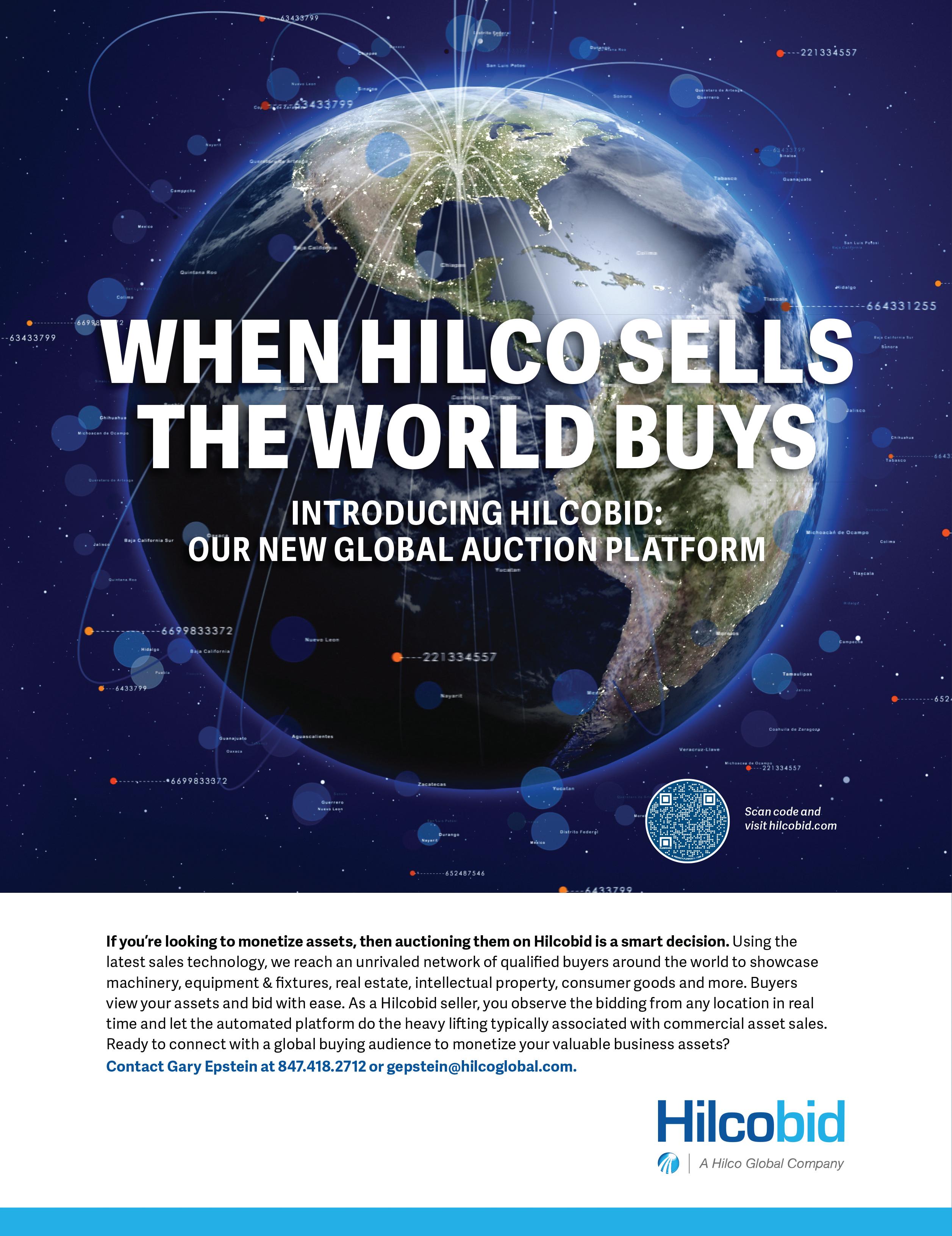






With unparalleled information and access to the private economy, Grata unlocks opportunities and gives dealmakers the competitive edge.
GRATA.COM


In our first issue dedicated to business development, we’re honoring BD professionals across private equity, investment banking and corporate development. Some of the content sprinkled throughout also talks about emerging trends and challenges in deal sourcing.
ANASTASIA DONDE Senior Editor, Middle Market Growth adonde@acg.org
Given how busy the market has been for the past year and a half, it might stand to reason that business development specialists could rest on their laurels and wait for deals to come to them. But the people who made our lists of Business Development Professionals to Watch and the topics laid out in some of the supporting content tell a completely different story. With such a flurry of available companies in the market, business development professionals have to increasingly get better at sifting their funnel of opportunities, figuring out which sectors and relationships are right for them, using data to find potential acquisitions and relying on a multitude of disparate sources.
The COVID-19 pandemic also threw a wrench into the usual business development process by reducing business travel, making it harder to pursue in-person relationships for a time and putting an unnatural pause on dealmaking in 2020. Since then, the market has roared back in full force. While most COVID restrictions have been lifted by now, the experience gave business development professionals new tools to work with. Some launched virtual events or converted live ones to online and now have decent traction in both channels. Others started running surveys or podcasts for their clients as a way to keep their community engaged. Those elements are still going strong and serving as a good way to get traction with sellers even if the pandemic is mostly over.
For new or emerging firms, business development professionals are often wearing different hats, working on marketing and other support functions. As middle-market investors and advisors grow, dedicated business development professionals become a more integral part of their business. A guest column from executive search firm BraddockMatthews notes that many private equity firms are hiring business development professionals earlier, the roles are becoming more specialized around sectors or geographies, and compensation is rising.
All these themes point to the fact that business development is becoming an indispensable part of the M&A landscape and we’re pleased to highlight some of its stars. //
Welcome to our inaugural issue on M&A business development! Here you’ll find some of the most prominent and wellrespected business development professionals to watch across private equity, investment banking and corporate development. As you’ll see, many of these people have been key parts of their firm’s growth and dealmaking success, in an increasingly busy and changing market.
At ACG, helping these professionals source and win deals is the bread and butter of our work across events, content and data. The market has been rocking on all cylinders ever since a brief COVIDinduced lull in 2020, leading business development professionals to better parse which opportunities are right for them, target a narrower group of investment banks and sellers, and focus on a select few sectors that they’re experts in.
THOMAS BOHN, CAE, MBA President and CEO, ACG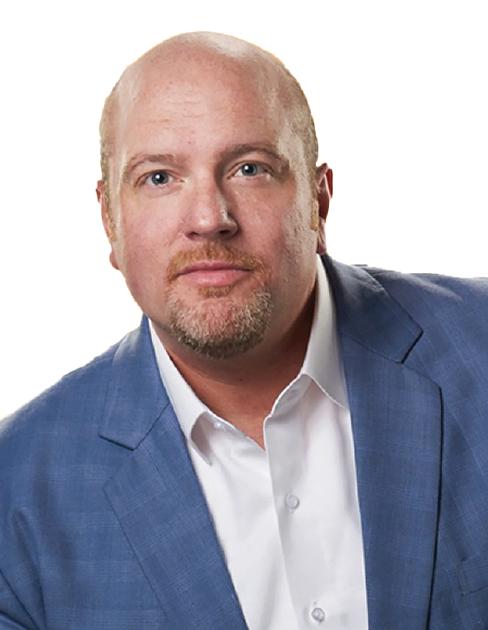
A large part of this work increasingly involves using data to better harness opportunities.
Speaking of data that can benefit business development professionals, I’d be remiss if I didn’t mention ACG’s recent acquisition of GF Data. GF anonymously surveys private equity professionals to gather data on mid-market transactions valued between $10 million and $500 million. GF then packages this information into reports and a searchable database that provide clarity on essential market metrics, including purchase-price multiples, debt coverage and key deal terms.
Our partners at Grata, a company intelligence engine for middlemarket dealmakers, also offer detailed information on over 6.5 million midsize companies across a multitude of sectors. In a guest column in this issue, Grata Chief Operating Officer and Co-Founder Nevin Raj talks about the need for streamlining dealmakers’ search for opportunities that is otherwise a complicated path involving many steps and sources.
We hope that the business development professionals highlighted in this issue—and others—will find the new tools and expanded offerings from ACG and our partners useful to their work. Maybe you’re reading this at InterGrowth. Or, if you’re picking up this report after the event passed, we hope all of our business development members and other M&A professionals have more chances to connect in person this year. //
In an increasingly busy M&A environment, private equity business development executives are sharpening their deal sourcing tools, forging better relationships with bankers and sellers, and increasingly relying on data to track opportunities. Some are narrowing their sector focus to better handle a flurry of auctions. When it comes to data, many are using Grata and other company search providers to find and sift opportunities.

PRESIDENT AND CEO Thomas Bohn, CAE, MBA tbohn@acg.org
CHIEF OPERATING OFFICER Matthew Hickman, MBA mhickman@acg.org
VICE PRESIDENT, ACG MEDIA Jackie D’Antonio jdantonio@acg.org
CONTENT DIRECTOR Kathryn Mulligan kmulligan@acg.org
SENIOR EDITOR Anastasia Donde adonde@acg.org
ART DIRECTOR, ACG MEDIA Michelle McAvoy mmcavoy@acg.org
SENIOR VICE PRESIDENT, SALES Harry Nikpour hnikpour@acg.org
SENIOR DIRECTOR, STRATEGIC DEVELOPMENT Kaitlyn Gregorio kgregorio@acg.org
Association for Corporate Growth membership@acg.org www.acg.org
Copyright 2022 Middle Market Growth® and Association for Corporate Growth, Inc.® All rights reserved.
Printed in the United States of America.
ISSN 2475-921X (print)
ISSN 2475-9228 (online)
Strategy is key in private equity and your portfolio’s health care benefit spending. Let UnitedHealthcare’s dedicated private equity benefits team show you how to lower your portfolio’s health care costs—and free up more money for investment and growth.
Aggregated purchasing leverages the buying power of all your portfolio companies for competitive pricing.
Advanced analytics and reporting help reveal opportunities to improve efficiencies in your portfolio’s health care coverage.
UnitedHealthcare’s extensive network includes 1.2 million physicians1 and over 6,000 hospitals nationwide1 .
Innovative tools and incentive programs help employees get healthier and manage chronic conditions—and reduce health care costs and boost productivity.



21 Private Equity BD Professionals to Watch

41 Investment Bankers to Watch
57 Corporate Development Professionals to Watch

This special issue, which honors the most innovative and forward-thinking professionals in business development today, was produced in partnership with Grata. Grata is a private company intelligence platform that helps drive more deals by connecting business specialists directly with companies that fit their target focus area. Sign up for an exclusive demo at grata.com.


Business development execs use data and more focused relationships to harness a robust dealmaking environment
Dealmaking in private equity was red hot in 2021, resulting in an excessively busy time for buyout firms across the middle market. In girding themselves for another active year—if one not so frenzied as the previous—finance executives are reestablishing in-person investor connections while diving into data and analytics to better track robust opportunities.
“The M&A environment is going to remain active in 2022,” says Bassem Mansour, co-CEO of Clevelandbased private equity firm Resilience Capital Partners. “Obviously, the year has started off with economic challenges highlighted by the invasion of Ukraine and rising interest rates. But there’s way too much dry powder with both private equity funds and public company borrowing capacity to think it will be a slow or even modest environment.”
Although this year’s deal flow is not projected to match that of 2021, interfacing with the right investment bankers is a priority for business development executives like Mansour. Resilience Capital remains on the hunt for new platform companies or add-ons for existing assets.
“It’s hard in our business to differentiate yourself, because the market has become so efficient,” Mansour says. “We pitch ourselves as the path of least resistance, while remaining fair on price. We’ll explain to bankers that we’re looking for businesses with particular characteristics, and through that we create a more streamlined process.”
Considering investment banks are narrowing their sales processes, sponsors must maintain meticulous knowledge of specific markets. Mansour’s firm, which focuses on the lower mid-market in industries encompassing life sciences, logistics and automation, drills
deep into an investment banker’s niches when pursuing any deal.
“A bank may have a guy good at distribution, or someone who’s good in automation,” says Mansour. “We have that platform available, so they should be thinking of us.”
U.S. investment firms closed more than 8,600 deals last year, representing a combined value of more than $1.2 trillion, according to Pitchbook. Total deal value marked a 50% increase over 2020, when the COVID-19 crisis put a brief pause on M&A activity.
Brent Kulman, director of business development for private equity firm Five Points Capital in Winston-Salem, North Carolina, says many private equity groups are aggressively expanding how they identify potential deals. Five Points recently added a staff member tasked with developing the firm’s executive network.
“Private equity in general is more focused on the staffing aspect of the business,” Kulman says. “Not internal staffing, but finding key executives or board members for your current portfolio companies, or using those resources to distinguish yourself when trying to acquire a new platform. These executives are often so ingrained in their markets, they can identify companies through their networks as well.”
Adam VeVerka, a partner at Philadelphia-headquartered NewSpring Capital and leader of the private equity firm’s business development efforts, says private equity companies had so many deals going last year, it became difficult to give them all equal attention. Matching supply to demand in 2022 means taking a multifaceted approach to building relationships, he notes.
First, in-person conferences are resuming. As of early
March, VeVerka has been on the road for a month, taking regular meetings at a pre-pandemic pace. Leading with relationships is crucial on the buy-side, according to VeVerka, who says he’s more interested in friendly sitdowns over the “speed-dating” scenarios he sometimes finds on the convention circuit.
“Spending time in person with city visits—even outside of a conference scenario—is important,” he says. “I want bankers to remember us, to know our story. When I talk to people, I’ll bring them our portfolio for review. They want to get smart on trends and to know what we’re investing in. They also want to hear about what opportunities could be good for them from a sell-side perspective.”
After two years of Zoom fatigue, investors are reintegrating into established markets. VeVerka is tapping into the Northern Virginia/Washington, D.C., region, a geographically convenient marketplace also rife with potential on the growth equity side. NewSpring draws on an ecosystem of attorneys, accountants and bankers that make the world easier to navigate when looking for add-ons.
“We might be talking to a lawyer in D.C. who covers healthcare tech and government services, which is going to give us a ton to discuss,” says VeVerka. “Even with a lot of ground to cover, there are some terrific opportunities available.”
On the heels of 2021—a perfect storm of deal flow due to low interest rates and large-scale COVID carryover—Pennsylvania-based private equity firm Argosy Capital is now focused on deals available in the manufacturing, B2B and healthcare sectors.
Jason Cunningham, Argosy’s vice president of business development, says the pandemic-spurred rise in video conferencing has strengthened the firm’s relationships with investors. Meanwhile, his firm and others pivoted from traditional dealmaking paths, a transformation that included an accelerated migration into the digital realm.
Before March 2020, Argosy had some experience harnessing analytics to determine which banks and prospective sellers to approach. The firm recently upgraded its DealCloud CRM, an interface purpose-built for private equity due to its baked-in contact management and tracking tools.
Argosy further invested in tools and databases to track buyout opportunities directly at their source. Proficiency on the sourcing side required precise calculation of individual deal activity.
“I like to look back at opportunities I’ve seen from various intermediaries and track how far we got in the process,” says Cunningham. “We’ve been successful in using data to help us understand where we should be spending our time to maximize our probability of success and be more efficient. It’s been very helpful to think about deals we should run hard at, versus deals that, even if we like, we should stand pat on.”
Kulman of Five Points says more firms are using powerful “intelligence engines” like Grata to research middle-market companies. Private equity firms, public market investors, banks and consulting firms alike use these online resources, which Kulman describes as “Google on steroids,” to discover relevant, up-to-date information on millions of companies. Grata, in particular, integrates web technology, machine learning and natural language processing to structure data that businesses often post unindexed on their websites. (Grata is an endorsed partner of the Association for Corporate Growth.)
Cunningham also points to Axial, a deal-sourcing and marketing tool that sources lower middle-market businesses based on geography, EBITDA, industry verticals and additional criteria.
Brent Director of Business Development, Five Points CapitalPrivate equity in general is more focused on the staffing aspect of the business. Not internal staffing, but finding key executives or board members for your current portfolio companies, or using those resources to distinguish yourself when trying to acquire a new platform.
Kulman
“Our firm leverages buy-side-focused intermediaries to source proprietary acquisition opportunities and subscribes to Pitchbook for a target list we might be able to use,” Cunningham says. “Those are just other arrows in the quiver. Many of the transactions we execute have a unique angle, but many just go back to relationships, which are always critical.”
Like other private equity firms in the COVID era, Cleveland’s Blue Point Capital Partners is still dealing with a backlog of transactions. New business is being catalyzed via in-person conferences like those ACG hosts, one of which managing director of business development Megan Kneipp attended last summer in Atlanta.
Similar to its fellow private equity firms, Blue Point is using data to track prospective new business. SalesForce software, for example, supports the firm in data tracking and reporting, with an internal digital group parsing exactly where and how Blue Point should spend its time. Deal sizes, capital expenditures and e-commerce trends are just a few benchmarks the company analyzes when weighing a transaction.
“Data is very important to us—we just hired an associate to help us from an analytics perspective,” says Kneipp. “Data proves out the right kind of information in terms of what we’re looking to bid on.”
Resilience Capital has been digitally tracing the sell-side for a few years now, to identify high-activity
It’s a challenge to stay top-of-mind with sources. For us, it’s making sure the efficiencies are there.
Jason Cunningham VP of Business Development, Argosy Capital
regions and industries, as well as whether a seller is a corporation, family-owned business or private equity sponsor.
“We started tracking analytics within our portfolio companies, too,” says CEO Mansour. “Companies post key performance indicators that we can then compare. We’ll create benchmarks across portfolios to track investments and find pressure points, like commodity or labor inflation in certain industries or geographies.”
Origination platforms like Axial act as another basis for deal sourcing, adds Argosy’s Cunningham. Otherwise, many of the fundamentals driving M&A activity remain relevant in 2022, among them the trend of older entrepreneurs considering succession plans and retirement.
“Private business owners with these big family companies may have exhaustion because of the pandemic,” Cunningham says. “This might be the third time they’ve had to rise from the ashes because of past financial crises, so that’s driving the decision-making process. Or people began to work from home and decided it was time to get liquidity.”
Private equity marketing departments are backing business development, working to close deals and even find investors. Cunningham works directly with his PR team to ensure both the marketing and development sides are interacting with the deal source universe in a thoughtful way.
“It’s a challenge to stay top-of-mind with sources. For us, it’s making sure the efficiencies are there,” says Cunningham. “We’re also providing investment bankers with content they will find interesting, like deal announcements or referral sources, and we created a website called Argosy Insights that’s focused on the operating side of our portfolio companies. This work marries the business development and marketing functions while presenting the face of the company.”
At Five Points, marketing is closely intertwined with the business development function, says Kulman. The departments recently acted hand-in-hand on a platform investment in Analytical Technologies Group (ATG), a specialty equipment and maintenance business lacking executive leadership. The marketing team used a prior association with an investment banker representing ATG to remind the firm to consider Five Points as a potential investor.
“Marketing will reinforce the message,” says Kulman. “This year we’re also working on micro-marketing,
where we’re targeting bankers or others in an area of an investment interest. We create distinct marketing messages that go to a network of contacts in specific industries. The messages are becoming more granular to specific industries.”
Looking ahead, private equity firms’ dry powder coffers remain full, with more than $74 billion in capital raised in the past year, according to Pitchbook, and M&A activity has stayed strong. The pandemic ultimately had little negative impact on deal flow, and concerns about an increase to the capital gains tax rate under President Biden motivated some owners to sell— although those changes never played out.
Today, the fast pace of deal activity is prompting some sponsors to raise funds, even as new threats to the market begin to emerge.
The private equity community is currently assessing how the conflict in Ukraine might impact private market portfolios. From export curbs to stiff sanctions that restrict Russia’s access to global financial markets, limits on raw materials or petroleum could affect certain manufacturing sectors.
“We’ll have to watch that carefully,” says Kulman. “Sanctions may not have a broad impact across private equity in areas like healthcare, but in a manufacturing investment where energy cost is a factor, that could put those deals on hold.”
Mansour of Resilience Capital adds, “Conflicts create uncertainty and uncertainty makes people nervous. There may be economic impact that doesn’t affect us, but the uncertainty is problematic. But even with headwinds such as the Ukraine conflict and rising interest rates, we remain cautiously optimistic for 2022.”
Taking the temperature of the larger economy, business confidence is still very strong, notes Cunningham of Argosy. What’s more, private equity is always evolving in the way it nurtures sell-side relationships and uses innovative tools to approach fresh business prospects.
“The old way of doing things is not the way people will be doing them in the future,” Cunningham says. “We’re all looking at how we can be more creative and efficient, and making sure we’re seeing the right opportunities for our firm. The future is a blend of old-fashioned business relationships and the data-driven element.” //
DOUGLAS J. GUTH is a Cleveland-based freelance writer covering the middle market and small business.
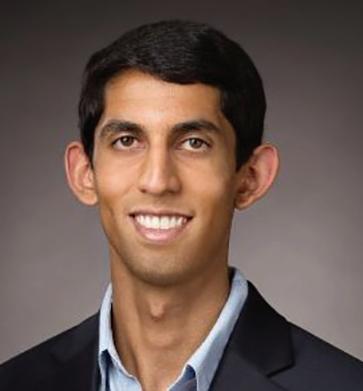
 BY NEVIN RAJ Co-Founder and Chief Operating Officer, Grata
BY NEVIN RAJ Co-Founder and Chief Operating Officer, Grata
The private equity market has gotten fiercely competitive. Identifying the right targets, closing deals and shepherding companies through a successful exit are only one part of the equation. PE firms must focus on operational improvements that will help them find the right deals in a fraction of the time it takes today.
Technology-driven data and research have the potential to optimize every aspect of the deal framework and create new efficiencies for PE firms. When it comes to technology, sponsors can often go one of two routes: build capabilities in-house or rely on disparate third-party solutions. The first approach is time-consuming and may limit interoperability. The second approach can lead firms to adopt bespoke, fragmented solutions that quickly become obsolete. And both approaches may not give PE firms access to accurate, relevant data in a timely fashion.
As private equity players seek to uncover company data and identify the right targets, they must move away from manual, fragmented processes. An artificial intelligence (AI)-driven, B2B search platform and accompanying integrations and services that optimize each stage of the deal life cycle—including identification, outreach, nurturing and due diligence—can help PE firms expand their investable universe.
Private equity investors currently grapple with several issues when it comes to finding the best deals.
First, the PE technology marketplace is saturated, but also extremely fragmented. It’s difficult to find a comprehensive solution that truly provides a holistic view of a potential
target company or target industry. Most databases tend to surface the same 100 or so companies and don’t provide the differentiated information PE firms need to find companies that truly fit their investment thesis. Like most organizations, financial sponsors also deal with increased data complexity and data sprawl. Fragmented solutions often lead to a fragmented view of data, so firms tend to struggle with centralizing their data and drawing actionable insights from the wide array of information they collect. In today’s competitive environment, all of this only leads to more inefficiencies for PE firms.
Investment firms also face operational challenges when sourcing deals. Their workflows are mostly manual and inefficient. Typically, they’ll start with a Google search, cross-check company size and growth on LinkedIn and check ownership and funding information on Pitchbook and Crunchbase. Next, they’ll research company contacts as they prepare to reach out to key executives. As you can see, this sourcing process is woefully inefficient and causes PE firms to waste too much time on research.
Firms increasingly rely on data and research to find companies, but they need more optimized data collection
and analysis processes. This is where advanced AI-driven technology can help firms and streamline every part of the deal life cycle—from identification all the way through due diligence.
Rather than using fragmented tools and disparate databases, PE firms can take advantage of AI-driven automation to find differentiated information about companies and quickly identify the right targets.
A differentiated search engine that sits on top of a company database can help firms unearth new companies, easily find contacts and build targeted lists based on specific investment criteria, such as company size, industry, specific keywords or specific market parameters. This solution, which connects to a CRM, can also consolidate information in one place to streamline analysts’ research and support outreach and nurture activities as firms advance through the deal life cycle.
PE firms often have relied on intermediaries to reach targets, but outreach
Firms increasingly rely on data and research to find companies, but they need more optimized data collection and analysis processes.
has become increasingly multichannel as both email and social media become critical to engage prospects.
In this environment, firms need to use technology with multichannel capabilities to optimize their sourcing processes. Individual mapping, people mapping and relationship mapping tools such as DotAlign, RelSci and BoardEx—and platforms that securely integrate with them—can help firms surface connections internally and externally that lead to introductions and allow them to meaningfully engage leaders at target companies. All of this can help firms close the right deals in less time. Dealmakers also need efficient ways to store and centralize data. Deal-specific CRM solutions like DealCloud and even general-purpose platforms like Salesforce are gaining traction.
Admittedly, this stage of the deal life cycle requires highly personalized, high-touch interactions that technology can’t replace. However, firms can still use specific tools to support the efforts of courting a company before it’s ready to seek investors. Many turn to email marketing software such as Mailchimp to assist in the segmentation and personalization of their nurtures.
Today, most PE firms rely on eventbased signaling to engage and follow up with prospects. However, they should also embrace signal-based nurturing. A platform with automated B2B search capabilities can help them improve this process by sending alerts based on certain triggers, such as a funding round or adding a marquee name onto their board or leadership team. By having all this information consolidated in one place and taking advantage of real-time notifications, firms won’t go several months without engaging
prospects. They can make prospect nurturing a routine part of their workflow.
Doing the proper due diligence can make or break a firm’s investment thesis about a prospective company.
Cloud-based technology platforms with AI and machine learning capabilities can be impactful during this stage of the deal framework as well. For example, a collaborative data management platform like DealRoom can accelerate the data discovery process and operate as a central repository for all due diligence data. PE firms can also use this platform to optimize their workflows, assigning specific tasks to different team members and tracking where everything is in the process to gauge whether they have all the necessary information to make an investment decision.
We now live in a digital world and private equity firms need to integrate digital tools into their processes to uncover the right targets and accelerate their deal flow.

Technology-driven data and
research are critical to optimize the deal life cycle. Firms need these capabilities, along with companion integration and services, to transition from manual, inefficient processes to modern deal sourcing operations. At Grata, we’ve created a private company intelligence engine with all these capabilities to help firms discover comprehensive company data and unlock the middle market. We also provide an array of data, information and consulting services to help firms improve their research and sourcing processes.
No firm should have to do weeks or months of investigative work to find potential targets. The process should be seamless and they must have access to accurate, differentiated data and insights. By leveraging the right technology and services, PE firms can achieve market-wide visibility, automate prospect identification, nurturing and outreach, perform comprehensive due diligence and close the right deals even faster. //
RAJ is the chief operating officer and co-founder of Grata, a private company intelligence engine for middle-market dealmakers.NEVIN
Today, most PE firms rely on eventbased signaling to engage and follow up with prospects. However, they should also embrace signal-based nurturing.Anthony
e recently
decarbonization goals of small and medium-sized enterprises (SMEs) by mitigating the financial hurdles associated with the transition to greener operations But why would we focus on SMEs rather than large corporations?
While large corporations hold great influence in the market, SMEs make up more than 99% of businesses in the United States and 90% globally “Small and medium” is an understatement in the context of their collective impact and contribution to the global economy and supply chain.
The impact of the COVID-19 pandemic on our economy revealed profound weaknesses across the entire global supply chain. As we continuously work through the consequences of those weaknesses, our new perception enables us to better prepare for other disruptors, like climate change. The world’s largest corporations are laserfocused on restructuring their supply chain strategies with sustainability and resiliency at top of mind
Many large companies are cascading climate action down the supply chain to their suppliers, which are often SMEs Contributing 60-70% of total industrial pollution, the impact of SMEs demonstrates why decarbonization is impossible without their efforts
At Siemens Financial Services (SFS), a recent survey of our clients found that 75% of our large, public portfolio companies have a decarbonization strategy Yet, the inverse was true for our SME clients; 75% of them do NOT have a decarbonization strategy.
Supply chain emissions – from manufacturers of products to transporters of goods – are roughly
11.4 times higher than operational emissions. We now require a carbon web assessment from all suppliers as part of our vendor-selection process –and we ’ re not alone.
The SMEs that make up our world’s supply chains must implement decarbonization strategies in order to remain competitive in the market. There needs to be an alignment of decarbonization expectations between suppliers and customers, or suppliers risk losing significant business
The major obstacle to sustainability initiatives is complexity. SMEs must baseline current emissions, identify areas for improvement, implement change with products and technology, and allocate capital to the project. The goal of the Siemens Kickstarter Capital program is to eliminate the complexity, add speed, and simplify the entire process
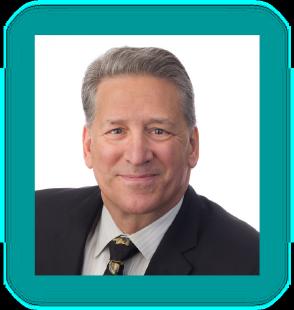

Participants can consult with a team of Siemens finance and technology experts to create a custom, end-to-end decarbonization roadmap Along with financing, the scalable roadmap will integrate Siemens Smart Infrastructure products, solutions, and services such as energy efficiency technologies, alternative renewable energy sources and electric vehicle charging infrastructure.
SMEs collectively hold the power to solve the global climate crisis and can protect their right to compete in the market by leveraging that power. Siemens can work with them to help them realize their emissions output and eliminate the supply chain’s carbon footprint with benchmarking tools and end-to-end, practical solutions.
Everything that SMEs need to help save the planet is available; now we must work together to harness the potential Visit www.usa.siemens.com/kickstarter to learn more about our Kickstarter Capital program.

Empowering SMEs to stay competitive while saving the planetPresident and CEO, Siemens Financial Services, Inc Casciano Anthony Casciano is president and CEO of Siemens Financial Services, Inc Wcommitted $100 million in ‘Kickstarter Capital’ to advance the
Despite the ongoing pandemic, transaction activity in the healthcare space was very robust in 2021. Most healthcare businesses swiftly rebounded from the initial COVID-19-related shutdowns of 2020, with companies and their private equity sponsors quickly shifting gears from working through liquidity and covenant issues in the first half of the year to pursuing opportunities for growth starting in the second half.
The healthy volume of add-on activity seen at the end of 2020 continued to build through 2021, with LBO activity also picking up, making it a busy year not only for PE sponsors and the healthcare companies they back, but also for the lenders these groups call on for financing to support transactions. Twin Brook Capital Partners, for example, committed a record $3.5 billion to private equity sponsors in support of healthcare transactions last year, which included 28 new platform financings and 32 facility upsizing transactions across 33 healthcare subsectors.
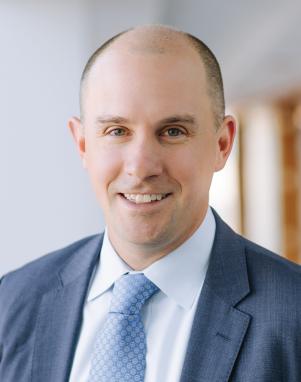
As we’ve moved into 2022, healthcare has continued to be an active sector for middle-market leveraged finance, with interest spread across a broad spectrum of subsectors. Considering the positive demographic trends, resiliency of the sector throughout the pandemic and non-discretionary nature of the services most of these businesses provide, healthcare overall is viewed as less cyclical than many other industries. These factors have contributed to the elevated deal volume in the space.
LBO activity in the healthcare space is expected to be strong through 2022, but that does not mean incremental deals are losing their appeal. We expect to see the pace of add-on transactions within the industry accelerate as many small business owners opt to join larger platforms due to continued uncertainty around the ever-changing pandemic environment, concerns about inflation
and the increased regulatory complexity of managing their own companies.
In this environment, the value of experience and reliability has come to the forefront.

Given the complex nature of healthcare investing, the importance of private equity firms partnering with lenders that have deep healthcare expertise and a strong track record cannot be understated. In order to provide smooth deal execution and continued support of a sponsor’s equity thesis post-close, it is critical that lenders in the healthcare space understand key sector-specific diligence areas, including but not limited to the reimbursement and regulatory outlook, compliance risks, FDA requirements, human capital issues and state-specific structuring requirements.
Furthermore, over the past two-plus years, private equity sponsors and companies have witnessed the benefits of partnering with lenders that take a relationship-focused approach and will work hand-in-hand with them through both challenging times and periods of growth. As a result, we’ve seen sponsors increasingly look to narrow the field of lenders they turn to, with many of the established, scaled lenders that were able to effectively navigate the initial shock of the pandemic and provide their clients with consistent, reliable support winning market share.
Looking to the balance of 2022 and beyond, we believe these factors will continue to be key differentiators when it comes to lender selection—particularly in the healthcare space—as the rapid pace of activity and resulting demand for financing in that sector is expected to persist. //
ACG Members represent the most active and engaged professionals within the middle market.
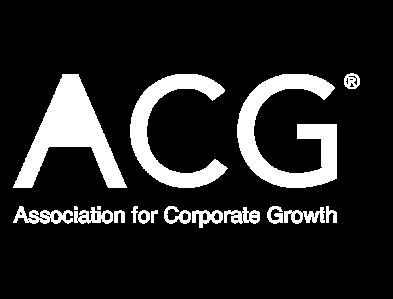
They embody ACG’s mission of driving middle-market growth by carrying out their own missions: to source and close deals, to grow their own organizations, to win business, and to continue developing their own careers.
And we help make it happen. When you join ACG as a member, you gain access to the exclusive network and benefit from the connections that ACG actively facilitates.
Does this sound like you? Are you among the middle-market’s foremost, deal-making, business-growing, investment-finding, ladder-climbing, acquisition-targeting, talent-sourcing, hand-shaking, professionals?
Do you aspire to be?
If so, we encourage you to join ACG as a member and take advantage of the following benefits:
� Invitations to Member-Only Events - Collaborate with other ACG members and benefit from expert panels and industry insights. (Some events are just for fun.)
� Member-Only Discounts for just about all ACG-hosted events, including InterGrowth: the premier dealmaking conference in the middle market.
� Access to – and a presence – within the ACG Member Directory: Search for and connect with fellow ACG members with our exclusive directory of middle-market professionals.

� A Subscription to Middle Market Growth® Magazine: Keep up to date on news, trends, best practices and thought leadership in the middle market.
� ACG JobSource® - Post or search for a job on ACG’s job board.
� Earn your MMP via ACG’s Middle-Market Professional Certification Program at a discounted rate.
� Member-Only Offers courtesy of ACG’s Partners
∆ 6-Month Free Trial for FoundersCard
∆ 2-Month Free Trial for CLEAR (or a $30 discount for a year-long subscription)
∆ Exclusive benefits on subscriptions to Grata
∆ Pre-approval for a free membership to EPG
∆ Enroll your company in the ParityINDEX®, a proprietary DEI measurement tool created by Parity.org.
75% of ACG Members do deals with other members26 YEARS IN BUSINESS
7 INVESTMENT FUNDS RAISED
1.9 BILLION OF COMMITTED CAPITAL
140+
PLATFORM INVESTMENTS
70+ INDEPENDENT SPONSOR PLATFORMS
Peninsula Capital Partners provides customized debt and equity solutions to middle-market companies as either a control or non-control investor. We specialize in working with independent sponsors and directly with companies on buyout, recapitalization, growth and other leveraged capital transactions.



The “Private Equity Business Development Professionals to Watch” list was compiled by Middle Market Growth editors based on nominations from the ACG dealmaking community.

Nominators were asked to put forward PE professionals focused on business development who are active in the market, well-respected by deal partners and peers, and who have achieved success in their roles. They include relatively new entrants to the profession along with business development veterans.

To compile the list, the editorial team considered
the number of nominations each person received, the information provided on the nomination form and available online, and additional input from ACG members, volunteers and leaders.
There’s no ranking for the lists, nor for the individuals profiled in the following pages. The profiles are designed to showcase the diversity of the BD profession across various dimensions, including firm size, geography, race, gender, career stage and more, and to tell the stories of individual professionals working in this field. //
CHRISTOPHER BERTON | Trivest Partners
Vice President, Business Development
Coral Gables, FL
ALICE BIRNBAUM | BBH Capital Partners
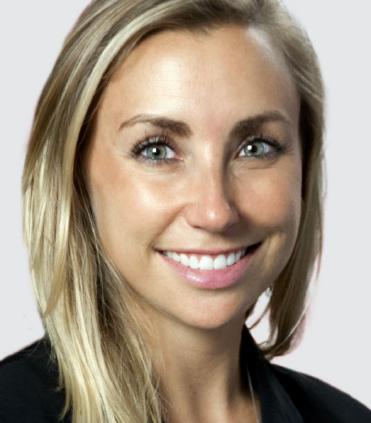
Head of Business Development
Boston, MA
TY BLACK | Gridiron Capital
Associate, Business Development
New Canaan, CT
PIERCE COTICCHIA | Altamont Capital Partners Director
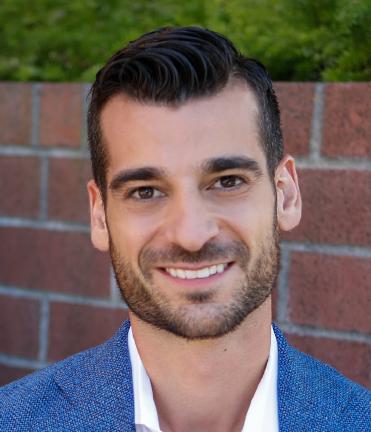
Palo Alto, CA
KEVIN DOYLE | Tenex Capital Management Director, Business Development

New York, NY
ROB DREIER | H.I.G. Growth Partners
Head of Business Development
Boston, MA
CHARLIE GIFFORD | New Heritage Capital Senior Partner
Boston, MA
RYAN GRAND | HKW
Principal
Indianapolis, IN
RICH GRANT | Northlane Capital Partners


Director of Business Development
New York, NY
Ty Black brings a keen deal execution eye to his work on the business development team at Gridiron Capital. Based in Connecticut, Gridiron is a middle-market firm focused on three core sectors: branded consumer, B2B and B2C services, and niche industrial. Black spent several years as an investment professional at the firm before transitioning to the BD team to help build out a more systematic infrastructure for Gridiron’s origination strategy. Rather than simply focusing on creating relationships with bankers, his goal is to build the firm’s expertise in its subsectors of interest and find great companies to partner with and grow.

Beyond originating platform deals, Black plays a critical role in working with existing Gridiron portfolio companies on building inorganic growth strategies, sourcing add-ons and integrating acquisition targets. Black is collaborative and team-oriented. Executives at Gridiron portfolio companies praise his ability to help them navigate between private equity and their own corporate culture as they work to cultivate a productive partnership.
His colleagues credit his hard work with helping Gridiron stay at the forefront of key opportunities. Since inception, the firm has invested in 35 platform companies and its portfolio companies have acquired over 100 add-ons. Black’s technology savvy and data-centric approach are complemented by old-school BD skills—he is widely praised for his deep understanding of industry dynamics and his natural ability to build relationships with intermediaries and business owners alike.
Executives at Gridiron portfolio companies praise his ability to help them navigate between private equity and their own corporate culture as they work to cultivate a productive partnership.

Rich Grant’s role as the director of business development for Northlane Capital Partners is his first in private equity. He joined the healthcare- and business services-focused middle-market firm in February 2021. Grant brings extensive experience to Northlane from adjacent roles in the dealmaking community, including working as director of business development for consulting firm Growth Operators, where he built over 200 relationships with private equity firms for the business in under two years, and as a senior sales manager for Mergers and Acquisitions magazine.
As the first dedicated business development hire at Northlane, Grant has used his deep sales training and understanding of the complex middle-market ecosystem to develop a more systematic, consistent approach to tracking and nurturing relationships with intermediaries. While Northlane has traditionally been more transaction-focused, Grant has brought a new perspective regarding the importance of relationships to increase deal flow and
open up new opportunities. He is widely known in the middle-market dealmaking community for his good-natured personality and genuine ability to connect with those in his orbit.
Being proactive has been key to Grant’s early success in the role. Rather than wait for deals to come to him, he uses technology, as well as traditional networking strategies, to seek out and deepen connections with bankers covering the firm’s areas of interest. Grant has already begun building out a business development team at the firm and recently hired a BD associate to help manage and further expand Northlane’s outreach efforts across the United States and Canada. Grant has also been instrumental in promoting diversity, equity and inclusion (DEI) efforts within the middle-market private equity industry, including through his work as the co-chair of ACG Global’s DEI Committee. Grant works tirelessly to increase the number of people of color in entry-level jobs, as well as ensure that there are adequate retention efforts in place to diversify leadership ranks in the future.
Grant has also been instrumental in promoting diversity, equity and inclusion (DEI) efforts within the middle-market private equity industry.

Mark Jones is a name that many in the middlemarket dealmaking arena will know well as a trailblazer in the profession. He joined River Associates in 1995, and has been a partner for 22 of his 27 years with the firm. River Associates is a lower middle-market private equity firm based in Chattanooga, Tennessee, that focuses on management partnerships.
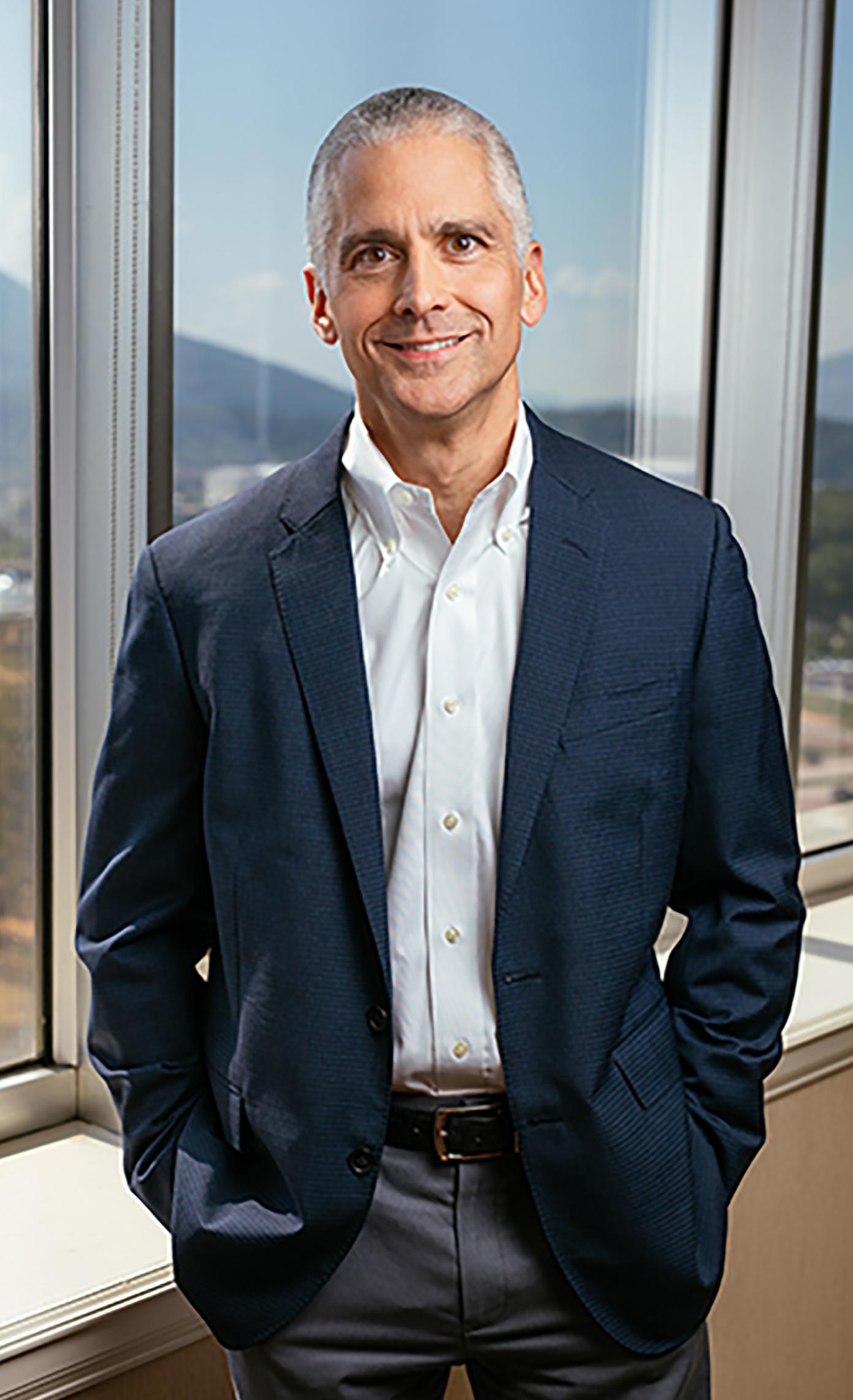
As an early adopter of the business development-focused model of private equity, Jones has been instrumental in developing River Associates’ network of investment bankers and intermediary relationships throughout the country and helping to build the firm’s sterling reputation in the lower middle market. Since Jones joined the firm, River Associates has closed 99 deals. The firm is currently investing out of its seventh fund with $285 million in committed capital.
Jones’ approach to the business development role prioritizes responsiveness, candor, collaboration and honesty. Intermediaries prize his exceptional ability to communicate clearly and effectively about which deals work for River Associates and which don’t, so that bankers come right to him when they have an opportunity that might be a fit. For Jones, manners are paramount and responsiveness is non-negotiable: He never ignores a teaser or misses an IOI date. As a business development professional, he is known for cultivating genuine, long-term relationships with intermediaries and has a deep sense of mutual respect for deal sources and others in the field. Fellow BD professionals praise his emphasis on collaboration over competition.
As a long-time partner at River Associates, Jones’
role extends beyond deal sourcing; he also takes a lead role in management meetings with prospective portfolio companies as well as overseeing LP relations. Jones’ dedication to the dealmaking community is apparent in his volunteer commitments, including serving on the ACG board of directors from 20052010 and as the chairman of ACG InterGrowth in 2008. Jones is widely recognized as one of the top BD professionals in his field, and yet is also cited repeatedly for his humility, genuineness and collaborative approach.
TONY HILL | Trivest Partners
Principal, Business Development
Miami, FL
FARRAH HOLDER | IMB Partners
Managing Director, Business Development
Bethesda, MD
KRISTIN JOHNSON | Altamont Capital Partners
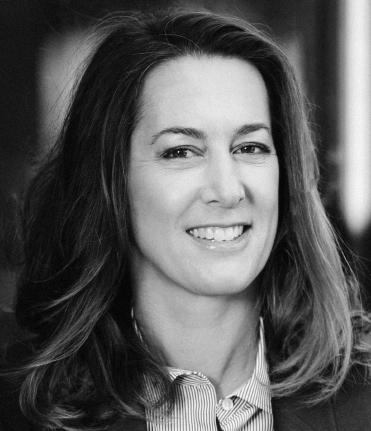

Managing Director
Palo Alto, CA
MARK JONES | River Associates Partner
Chattanooga, TN
MICHELLE A. LEWIS | Capstreet
Principal, Head of Business Development
Houston, TX
STEPHEN MADSEN | Monomoy Capital Partners Director
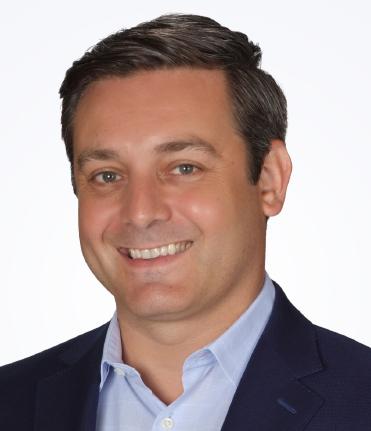
New York, NY
GRANT MARCKS | The Riverside Company
Principal, Origination
New York, NY
SEAN M CKINNON | Novacap Head of Business Development
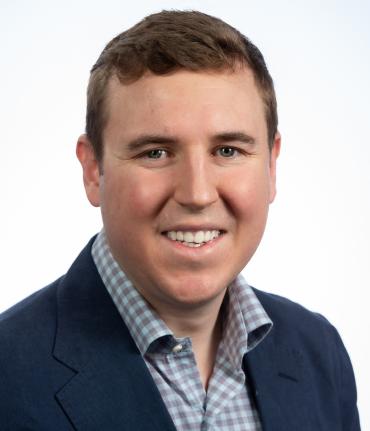
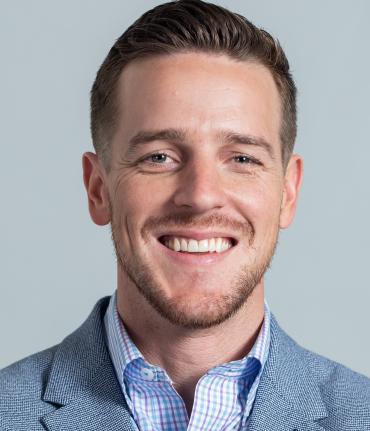
Toronto, ON
MASON M CVERRY | Frontier Growth
Vice President
Charlotte, NC
MATT MORAN | Inverness Graham
Managing Principal, Head of Business Development
Wayne, PA
MEAHGAN O’GRADY MARTIN | Palladium Equity Partners
Director, Business Development
New York, NY
KATIE OSWALD | Crossplane Capital
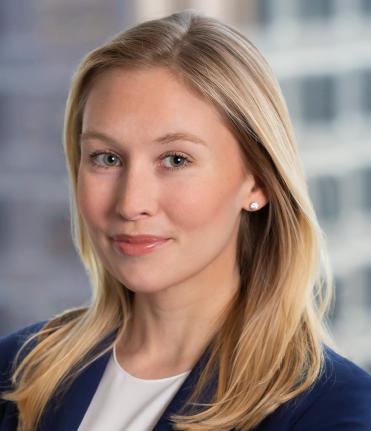
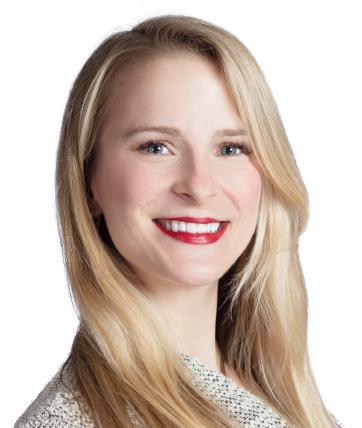
Director of Business Development
Dallas, TX
GUS PHELPS | Summit Partners
Principal
Boston, MA
AARON POLACK | Lion Equity Partners
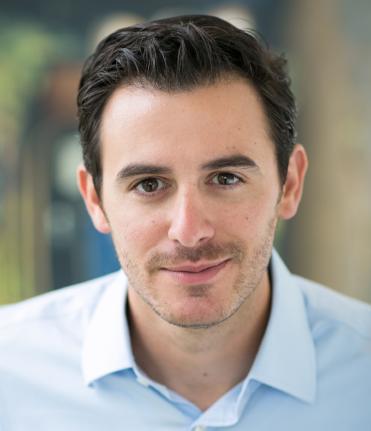
Head of Business Development
Denver, CO
COURTLAND SCACCETTI | Graham Partners
Director, Business Development
Philadelphia, PA
GARRETT SCHIRES | Sentinel Capital Partners
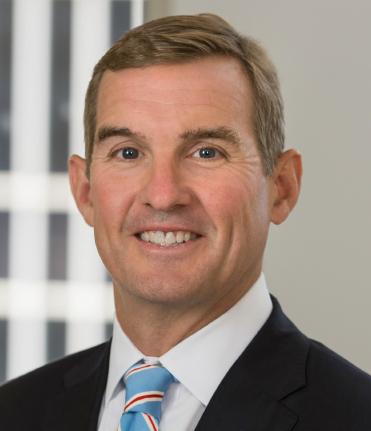
Partner
New York, NY
EVAN SEQUEIRA | TorQuest Partners
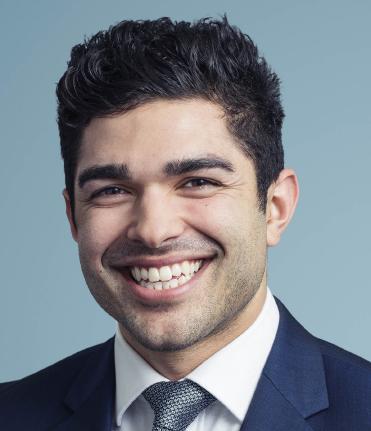
Director, Business Development
Toronto, ON
Sean McKinnon, head of business development at Canadian private equity firm Novacap, started his career as a lawyer, but he couldn’t get over the nagging feeling that he was on the wrong side of the table. Rather than papering transactions and being chained to a desk, he wanted to spend his time working with people—bringing in clients, learning about new companies and building relationships. Eventually, McKinnon got the opportunity to work as the vice president and co-head of the M&A practice at insurance company BFL Canada and later transitioned to his role at Novacap in 2018.
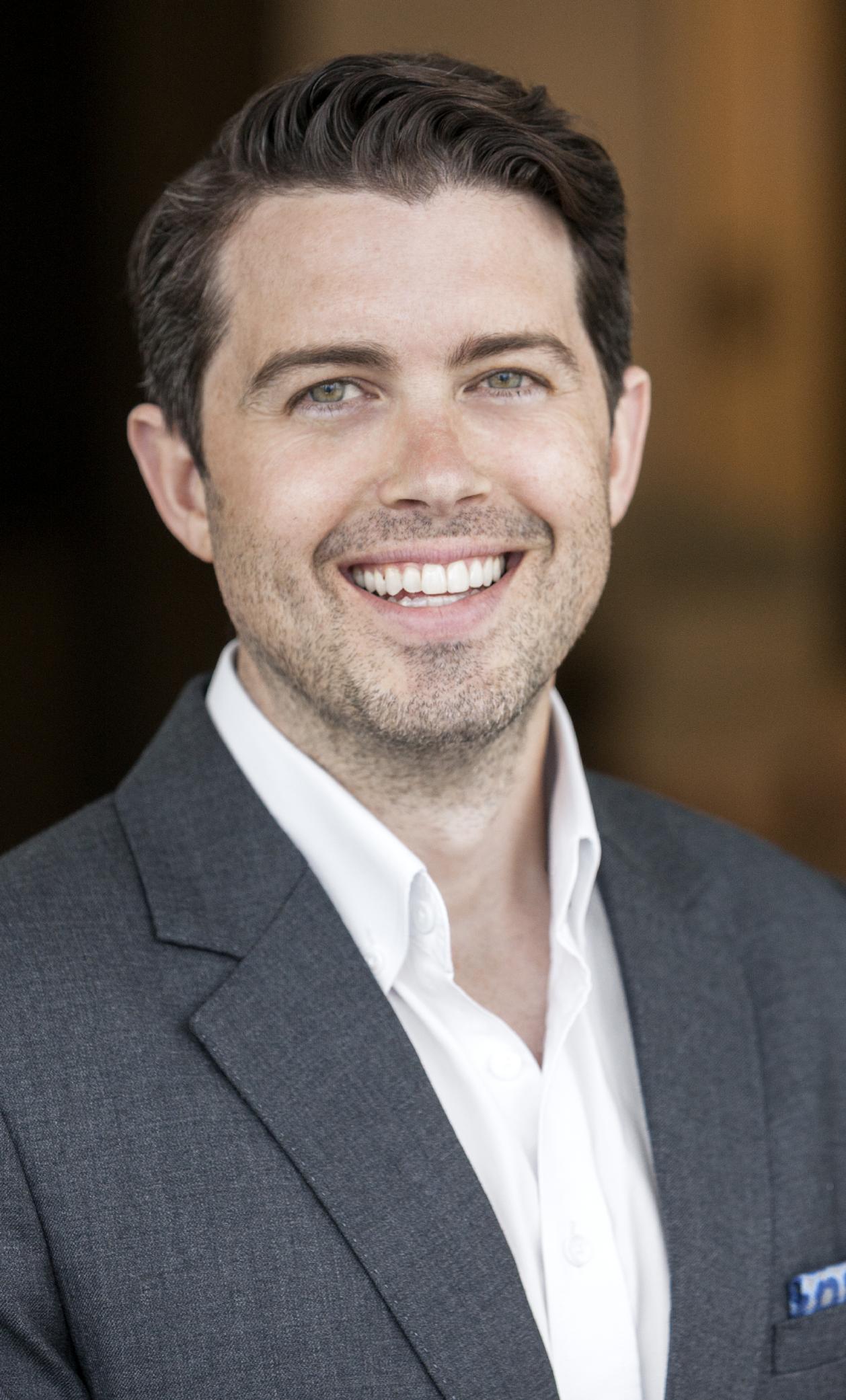
While the dedicated business development professional is increasingly common in the U.S., in Canada the function is still relatively new. McKinnon has played a prominent role in building Novacap’s business development strategy, both in the U.S. and Canada. Novacap’s history mainly involved working directly with entrepreneurs, so McKinnon spent his first year at the firm building out relationships with the investment banking community. With multiple funds under the same brand, including specialist TMT and financial services funds, McKinnon played an important role in establishing Novacap’s brand and ensuring that its various investment interests were clearly communicated to the market. Novacap has seen significant growth over the past several years, with AUM doubling in the last two years alone.
McKinnon also plays an important role in the wider Canadian middle-market dealmaking community, currently serving on the board for ACG Toronto and previously serving as chair of the ACG Young Professionals Committee, co-chair of ACG Capital Connection, and as vice chair of the CVCA Awards Committee. McKinnon is widely celebrated in the PE community for his positive presence, thoughtfulness and integrity.
McKinnon is widely celebrated in the PE community for his positive presence, thoughtfulness and integrity.
When Brian Hegi and Ben Eakes were starting up their new private equity firm, Crossplane Capital, they had no plans to hire a business development director. That quickly changed after a meeting with Katie Oswald, who was then a BD associate at Dallas-based middle-market firm Gauge Capital. (Oswald previously worked as CFO of a Dallas family office, and is a CPA by training who began her career in the audit practice of KPMG.)
Over breakfast, Oswald pitched the Crossplane founders on the role and immediately impressed them with her passion, entrepreneurial spirit and drive. She officially joined the Crossplane team in early 2019. Based in Dallas, Crossplane closed its first fund in December 2020 at a hard cap of $275 million and was poised to close on its sixth platform investment (and 20th total acquisition) in March.

Over the last three years, Oswald has built the business development function at Crossplane from the ground up, establishing the firm’s brand and implementing best
practices and processes around deal origination. Crossplane has deep experience in the lower middle-market industrial space and targets companies with between $40 million and $200 million in revenue.
Oswald’s driving goal is to ensure that intermediaries understand the criteria for a good Crossplane Capital deal, and to make sure the firm is top of mind when any relevant opportunities arise. She also manages the internal origination process, spearheading a weekly investment committee team meeting to manage and evaluate any deals that come in. She has increased the firm’s marketing efforts not only to intermediaries but also CEOs of family-owned businesses. Even in the challenging climate of 2020, and as part of a new firm, Oswald’s business development efforts led to 800 deals being evaluated by the Crossplane team that year. That number continues to increase, with 1,200 deals evaluated in 2021. As travel resumes this year, Oswald is poised to continue her impressive origination efforts and drive further success for the Crossplane team.
Over the last three years, Oswald has built the business development function at Crossplane from the ground up.
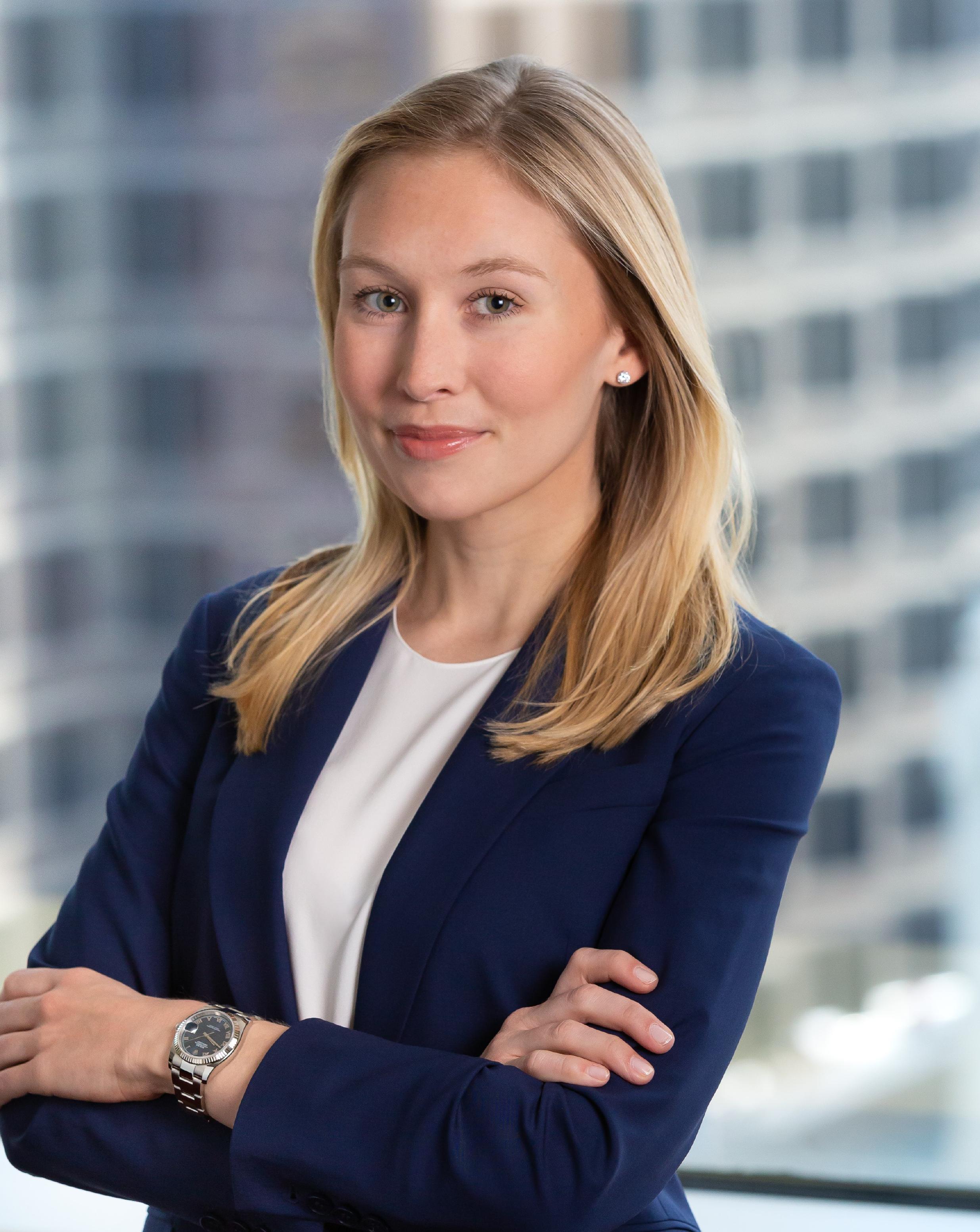
As a lower middle-market firm with a niche industry focus, IMB Partners is increasingly landing on radars in the world of private equity. Farrah Holder, the firm’s director of business development, has been an important asset in raising the firm’s profile since she joined in 2016. Clients and colleagues commend her for her creativity, openness to new ideas, resourcefulness and responsiveness in working on deal sourcing and marketing. As a result of Holder and the investment team’s efforts, IMB has invested over $800 million of capital and grown its selection of platforms threefold, from two to six.
Bethesda, Maryland-based IMB Partners invests in service businesses in the electric and gas utility sector, as well as government contracting companies that support federal, state and local governments. The firm targets companies in the $5 million to $25 million EBITDA range, with add-on acquisitions as low as $1 million. As the first dedicated business development hire for IMB, Holder is responsible for both deal origination and brand development.
Holder joined the firm in 2016 and was promoted to managing director last year. Prior to IMB Partners, she was a co-founder and president of ThinkNXT Marketing, a boutique marketing firm. Her previous experience is in business development, finance and marketing— which she still oversees for IMB Partners—and her role has involved deal execution from the beginning of her tenure.

Clients routinely give her high marks for being organized and professional, and for handling requests in a timely manner. A sell-side banker who recently worked with Holder on a transaction says she has a great attitude, is very process-oriented and handled all the
milestones of an auction well, from presentation materials, to financial modeling, to introducing the investment team and other steps.
“Farrah plays the long game in her approach to business development—genuinely investing in personal relationships with service providers across the industry,” says a service provider on a recent deal that IMB Partners closed.
The development of marketing strategy is also key to Holder’s role. She usually puts together a marketing plan at the beginning of the year, and oversees social media, press releases and email campaigns. While IMB Partners works with an outside PR firm for marketing help and an outsourced buy-side firm for deal origination assistance, Holder is the only person on staff overseeing these elements. She says she plans to hire a support person at the end of the year.
KEVIN SIEDENBURG | Staple Street Capital
Principal & Head of Business Development
New York, NY; and Dallas, TX
STUART SITTERSON | Gryphon Investors
Director, Business Development Group
San Francisco, CA
STEVE SMITH | Tower Arch Capital
Vice President, Head of Business Development
Salt Lake City, UT
JORDAN STONE | Platinum Equity
Principal
Los Angeles, CA
HAYDEN TYSON | Monomoy Capital Partners
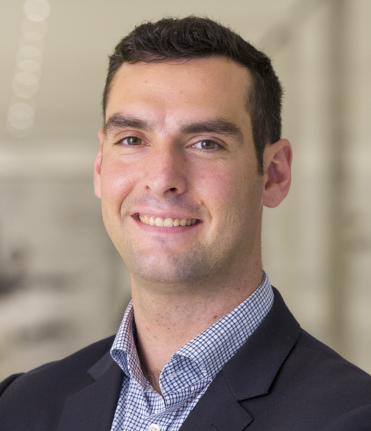
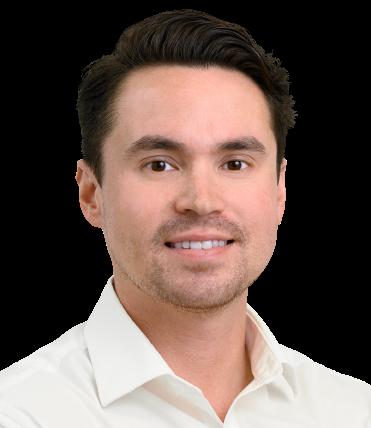
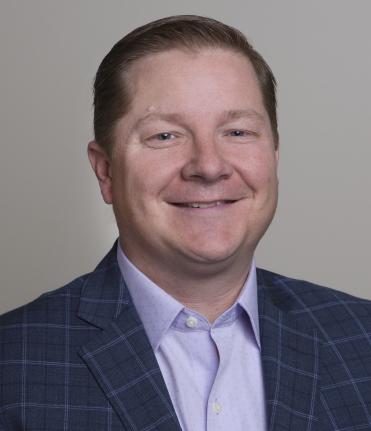
Vice President
New York, NY
NATALIE YATES | Vance Street Capital

Director, Business Development
Los Angeles, CA
At Lion Equity Partners, Aaron Polack has been instrumental in developing relationships with corporate sellers. Lion Equity focuses on corporate carve-outs and Polack, in his role as head of business development, has been successful in connecting with corporate executives to find spinouts. While many other business development professionals often focus on relationships with investment bankers or fellow private equity sellers, Polack has carved a path among corporates, who usually keep their plans closer to the vest.
When he joined Lion Equity in 2008 as an associate, he didn’t have any corporate relationships yet and had to build them from scratch. “At first, I was just trying to reach everyone and anyone in corporate,” he says. Lion Equity was also a new firm at the time and Polack wore several different hats as part of a small team. Prior to joining the firm, he was an investment banking analyst at JPMorgan and PNC.
These days, he has an impressive Rolodex of corporate relationships and is key to generating proprietary deal flow for the Denver-based firm, clients say. He also now gets more inbound communication from corporate executives after launching a survey two years ago targeting the space.
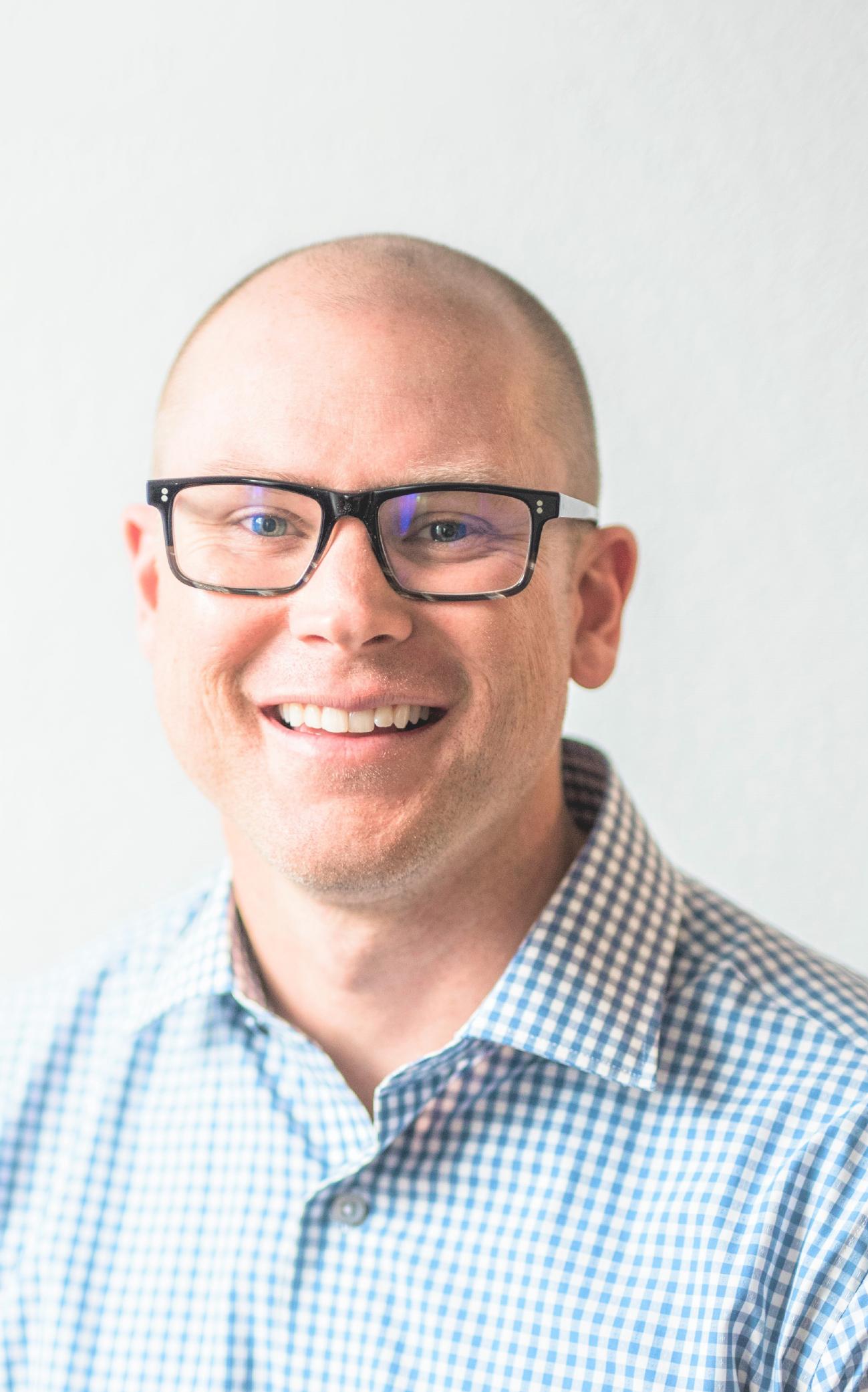
Several months into the COVID-19 pandemic in 2020, Polack launched his Annual Corporate Development Report, a survey that goes out to corporate executives and covers a variety of topics including valuation multiples, best practices and other dealmaking trends. When the M&A market took a collective pause in 2020, Polack thought it would be a good time to launch this survey and provide something valuable to his contacts and clients and find ways to stay connected.
This year, the survey included questions on compensation and was very well received, as there isn’t much
compensation benchmarking information available for middle-market corporates. In 2022, the survey had over 700 respondents—up from around 250 in 2021.
Polack has also been very active in the ACG community. He has served on the ACG Global board since 2018, sits on the InterGrowth 2022 committee and will chair the 2023 InterGrowth conference. He has been instrumental in getting corporate leaders engaged in ACG events. He was a founding member of the ACG Denver chapter and launched the ACG Strategic Acquirer Summit in 2019. The corporate-focused event took a hiatus the past two years because of COVID but will now be featured as part of InterGrowth.
The biggest year of M&A activity in the middle market has drawn to an end. Will 2022 be more of the same? Can the markets hold up to 2021’s frantic pace? Will it remain a seller’s market?
In 2021, motivated sellers were trying to beat the clock on potential changes to the capital gains tax. Not even the COVID-19 pandemic, massive spending and a weakening dollar compared to a proposed legislative change that could greatly increase the tax bill of most middle-market business owners looking to sell their business.
The last time the market saw this kind of surge was in 2012 when the estate tax exemption was set to fall from $5 million to $1 million on January 1, 2013.
Both 2012 and 2021 had similar levels of “dry powder” (i.e., uninvested dollars) from the private equity community, too. In 2011, in anticipation of looming estate tax changes and 2012 M&A activity, the private equity community saw first-time funds rush to the market and raise $38 billion far more than the surrounding years. Those funds were rewarded by sellers coming to market before tax changes could take effect.
Fast forward to 2021. Dry powder reached over $1.4 trillion, and sellers again came to market spurred by looming tax changes. Note that privately held corporations also had cash ready to invest. They competed with private equity for the same quality businesses.

Many businesses have long been expecting a “silver tsunami” when baby boomers would start selling their businesses, and the great wealth transfer and exit would happen. However, there is one factor that no one saw coming: The pandemic has driven many owners in their 40s and 50s to re-evaluate what they are doing, how they are spending their time and what really matters in life. Now, non-boomer-owned businesses are looking to derisk, take on an equity partner, exit all together or at least entertain one o f those possibilities.
In 2021, businesses were told that going to market when there is limited supply would get them the best exit pricing. Lack of supply drives up pricing, and for the readied quality seller, selling price inflation will be a very good thing. This push, combined with the pull of potential tax increases, finally made a few take the leap to sell. For the M&A community, 2022 is setting up to be much like 2021, with dollars ready to be spent on quality companies. You just have to get to market first. And Wipfli can help. Let us assist you with everything from planning and strategy to due diligence to negotiations.
When we speak to our fellow ACG members about priorities, consistently they tell us that one of their most important areas of focus is value creation.
That’s music to our ears, because we’ve created a platform – the Company.com Digital Experience Platform (DXP) –that helps mid-sized companies do exactly that: Create value during all stages of the transaction.

Improve your engagement and NPS metrics to show greater potential and increase your multiple.
Demonstrate a tangible path to digital transformation, showing potential suitors you are well in touch with, and adapted to, market trends. Remove the barriers to innovation by utilizing our platform to quickly launch and scale new initiatives.
You’ll be ready for rapid integration, reducing the time and effort it takes to tap into synergies and joint opportunities.
Develop a mutual roadmap that helps both sides of the transaction envision the future value of the organization.
De-risk the technological value proposition by having a number of best-in-class features available, including Identity Access Management, consolidated knowledge graph, and future-proof architecture.
You’ll be ready to execute on day one thanks to the Company.com DXP’s integration capabilities and easy-to-use creator tools.
Drastically reduce time to value by accelerating the business processes, innovations, and integrations called for by the combined vision of the new organization.
Amplify cross-portfolio synergies by avoiding siloed data and fractured customer experiences.


After a slowdown in 2020, there was a full sprint to complete M&A deals by the end of 2021, a surge that’s expected to continue through 2022. A primary driver of this deal flow in the middle market has been private equity firms, which are playing a bigger and bigger role as both buyers and sellers. PE shops are proliferating and continue to raise enormous amounts of capital that they must deploy, and they also need to exit their portfolio companies to generate returns for their investors. The universe of potential buyers for a traditional middle-market deal has drastically expanded over the past five years.
BY JIM CHILDS Head of Citizens M&A AdvisoryIn short, competition is intense, and with interest rates still low, deal valuations are at record highs. It’s become a very fluid, crowded market. The number of middle-market deals rose 27% from 2,621 in 2020 to 3,338 in 2021, according to Pitchbook. More
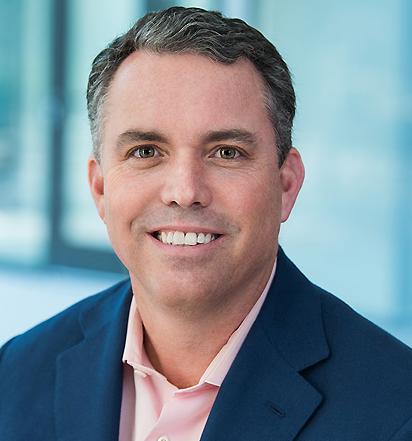
remarkable is that about 72% of those deals were closed by PE as opposed to strategic buyers, and the number of private equity deals has almost tripled in 10 years, from 860 to 2,406.
The vast majority of financial sponsors now have dedicated business development professionals and, similarly, nearly every investment bank has institutionalized the coverage of PE firms. These roles have become more defined over the past five years and more critical to keeping the market running efficiently.
More specifically, business development professionals at PE firms focus on creating and maintaining strong relationships with investment banks and key industry players to ensure their firm is seeing all the investment opportunities that fit its mandate, and that the firm is well-positioned to win deals. Meanwhile, coverage professionals at investment banks focus on this relationship-building to ensure their firms’ mandates get the appropriate attention from the decision-makers at the likely buyers, with the ultimate goal of generating more business with their covered firms.
Another fundamental shift in the M&A market, which amplifies the importance of good business development, is the amount of sector specialization that has emerged over the past few years. Many PE firms have narrowed their focus to gain a competitive advantage. For example, while they are still broadly targeting business services deals, a PE firm today might hone in on soft facility services as their ideal investment opportunity. Or, instead of looking broadly at basic industrials, a firm might focus on industrial automation. Experts are more likely to win deals in their chosen sector
because they can more quickly get up to speed on the opportunity and value that transaction with more conviction. PE firms increasingly believe that the sector intelligence derived from specialization enables them to generate additional value during their hold period.
As a result of this specialization and the emergence of institutionalized coverage and the business development function, the sell-side process has become more efficient. Some examples of this efficiency include:
• Buyers lists that are more targeted thanks to greater specialization
• Higher touch, senior banker-led processes that are imperative to stand out and garner attention from PE
• Earlier and expanded access to management during the marketing process
1. Competition for M&A deals will remain intense in 2022 and PE firms and investment banks need to differentiate themselves to win
2. Established business development and coverage functions are critical for investors and banks to win in today’s market
3. In a crowded, frenetic market, specialization is critical to moving fast and with conviction to win M&A deals
• More preemptive and thirdparty work completed by buyers and sellers to shorten diligence timelines
• Shorter exclusivity periods and fewer financing contingencies
Given these dynamics, what does the immediate future hold for middlemarket dealmaking? Interest rates are set to rise this year, inflation is at a 40-year high and geopolitical issues are adding a troubling level of uncertainty. That would seem to lay the groundwork for a deal slowdown. Yet PE firms still have huge amounts of dry powder that they must deploy. By mid-2021, the sector had amassed a record $3.3 trillion of unspent capital, according to Bloomberg, giving it significant firepower for fresh acquisitions. There is also an enormous inventory of PE portfolio companies that must be sold to satisfy investors. That will likely keep the deal spigot on.
We expect that deal volume in 2022 will be roughly on par with 2021, and that the rules of engagement that have emerged over the past five years will become more entrenched. To compete in this crowded, frenetic environment, companies need to specialize in sectors to zero in on the most enticing deals. With this expertise, companies can get up to speed on opportunities quickly, bid with conviction and generate additional value during the hold period. Equally important to specialization will be building and maintaining relationships. Strong relationships will help ensure that the firm continues to see all the investment opportunities that fit its mandate and is always well-positioned to win deals. //
JIM CHILDS is head of Citizens M&A Advisory. He has extensive experience in advising middle-market companies in mergers and acquisitions as well as capital raising. Childs has led over 75 transactions in his career.
$9.8B Commitments Issued to Date 200+ Inception to Date Transactions 100+ Deals as Lead/Co-Lead Arranger
WhiteHorse Capital provides senior and second lien debt for refinancing, growth capital, acquisitions, buyouts, and balance sheet recapitalizations for middle market companies in the U.S. and Canada. We offer a wide range of financing solutions across industry sectors and capital structures, serving sponsor and nonsponsor communities for more than 17 years.
• Relationship Oriented Mindset
• Underwrite Complex Credits

• Speed and Certainty to Close
• Flexible and Creative Solutions
• Transparent Approval Process
• Broad Investment Capabilities
To learn more, visit us at: www.whitehorse.com

The “Investment Banking Professionals to Watch” list was compiled by Middle Market Growth editors based on nominations from the ACG dealmaking community. The category was originally tailored for investment bankers who focus primarily on sponsor coverage, but it was expanded to include a broader set of bankers engaged in business development or other activities that support middle-market M&A.
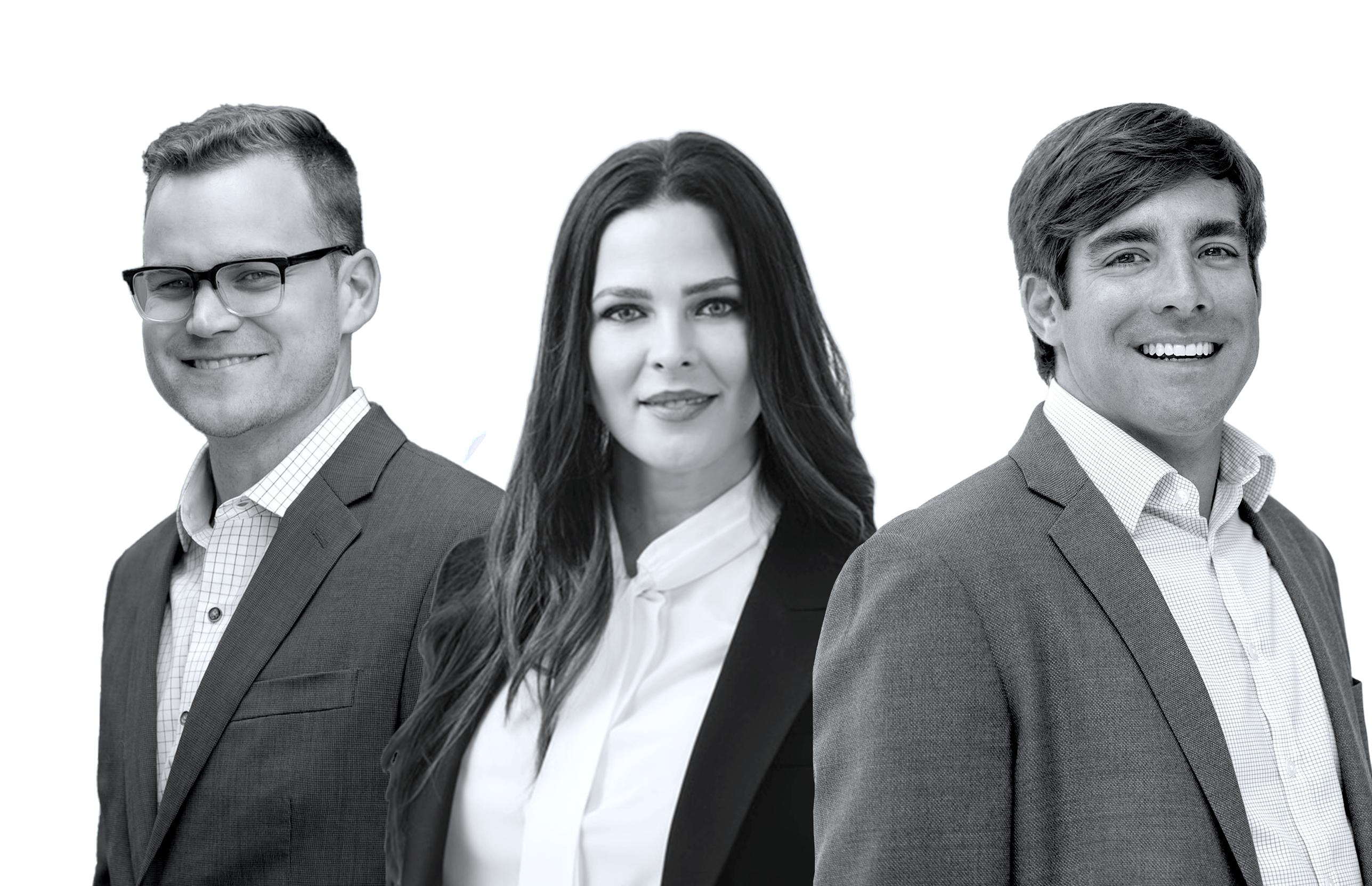
To compile the list, the editorial team considered the number of nominations each person received,
the information provided on the nomination form and available online, and additional input from ACG members, volunteers and leaders.
There’s no ranking for the lists, nor for the individuals profiled in the following pages. The profiles are designed to showcase the diversity of the middle-market investment banking profession across various dimensions, including firm size, function, geography, race, gender, career stage and more, and to tell the stories of individual professionals working in this field. //
BRENT BAXTER | Nolan & Associates
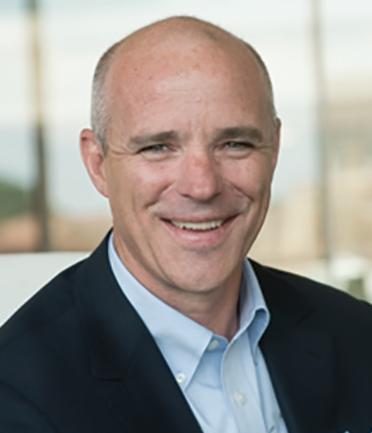
Managing Director
St. Louis, MO
VICTORIA BEARD | Piper Sandler & Co. Director, Marketing and Business Development
Houston, TX
KATHERINE BELLOWS | Cascadia Capital
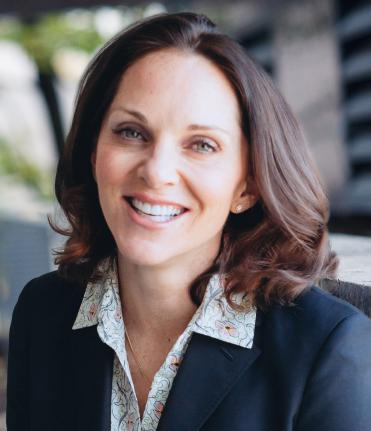
Managing Director
Seattle, WA
SYLVIA BLOUNT | Bardi Co.
Associate Director
Los Angeles, CA
DOUG BROOKMAN | Mesirow Investment Banking
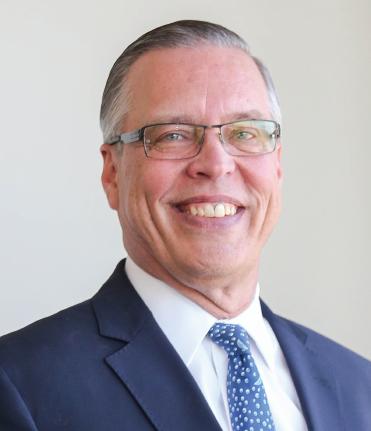
Managing Director, Financial Sponsors Coverage
Chicago, IL
MATTHEW CHERIAN | BDA Partners
Senior Advisor
Silicon Valley, CA; and Houston, TX
ALEX CONTI | UHY Corporate Finance
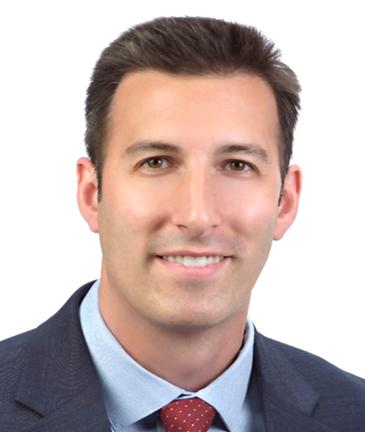
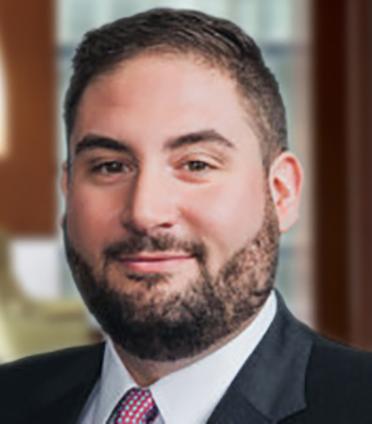
Managing Director
Farmington Hills, MI
BILL CONWAY | CC Capital Advisors
Managing Director
Kansas City
CHRISANNE CORBETT | KPMG Corporate Finance LLC
Managing Director
Chicago, IL
Tackling business development for a relatively new practice means every day brings new opportunities for Chris Macios as he helps grow Guggenheim Securities’ Private Equity Advisory business, with a focus on middle- and lower middle-market financial sponsor relationships.
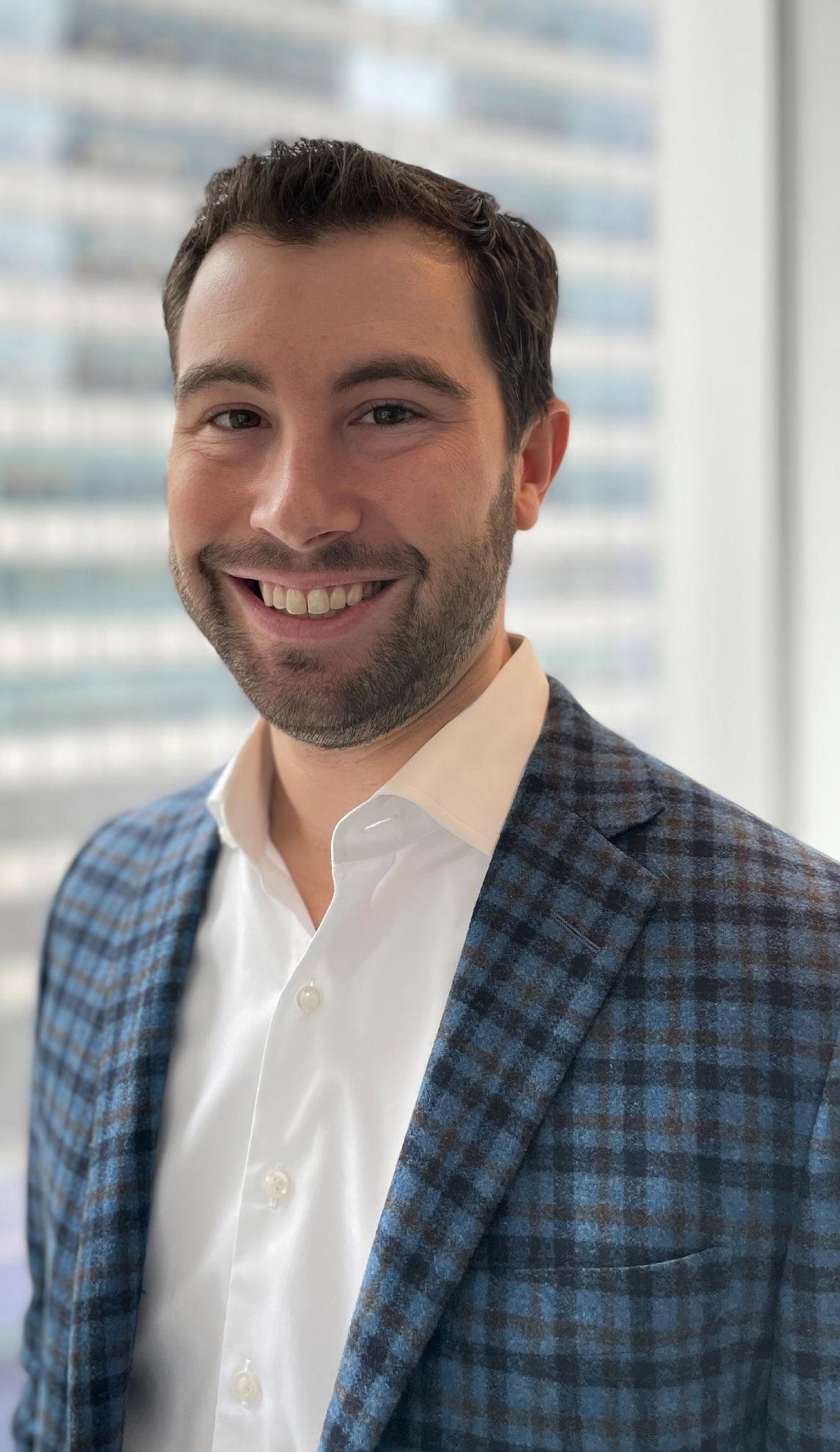
Guggenheim Securities is the investment banking and capital markets business of Guggenheim Partners.
Guggenheim Securities was founded in 2009. The rapidly growing Private Equity Advisory business started in 2019 and has successfully expanded the firm’s track record and reputation within the private equity industry. In 2021, the firm closed approximately 110 deals with private equity counterparties across its advisory and capital markets businesses.
The company is committed to continuing to develop its private equity advisory practice, which it sees as an important pillar of the overall business. With that goal in mind, the firm hired Macios in 2020.
Macios’ success in business development is tied to his long-view approach. He works to develop and maintain long-lasting relationships and is organized, responsive, thoughtful and personable, say those who’ve worked with him.
Whether it involved originating deals, cultivating client and/or investor relationships or identifying potential investors, Macios played an important part in several significant deals that were completed in 2021.
Some of the deals Macios worked on last year include the sale of A-LIGN, a company that performs cybersecurity assessments, to Warburg Pincus; a majority investment by the Boston-based private equity firm Berkshire Partners in Harvey Performance Company, a designer and manufacturer of precision machining applications; and the sale of 3Pillar Global, an international developer of digital products, to H.I.G. Capital.
Prior to joining Guggenheim Securities, Macios had already built a track record of success over 15 years in
investment banking. Previously, he was a director in Houlihan Lokey’s Financial Sponsors Group, where he focused on advisory and capital market transactions for private equity. Before that, he was director of the Financial Sponsors Group for Wells Fargo Securities.
While the past couple of years have been busy for Macios and the private equity advisory practice, he says he never forgets his priorities of building strong relationships, listening and finding common ground with prospective clients and investors.
He also works to reinforce his practice’s middle-market and lower middle-market focus.
Macios anticipates healthy deal activity in 2022 and looks forward to being part of Guggenheim Securities’ strategy to provide best-in-class capabilities to middle-market clients.
Experienced, tenacious, accessible and responsive are a few of the words that colleagues use to describe Amy LaBan, co-leader of U.S. Financial Sponsor Coverage for Canaccord Genuity, a global investment bank that delves deep into dynamic sectors of the economy.
Canaccord Genuity’s U.S. team concentrates on consumer and retail (both physical and digital); healthcare; industrials and sustainability; and technology, media, marketing and information services.
While she covers all of the firm’s banking practices, the last area of tech, media, marketing and information services is where LaBan has more than 25 years of experience. LaBan knows the industry and knows the players.
No matter what the deal is, LaBan’s goal is to bring added value to every transaction, which means understanding companies’ and investors’ needs and goals and making crucial connections between them by introducing her team’s industryfocused bankers with sector-specific knowledge into relevant conversations.
Canaccord Genuity is a middle market-focused investment bank, so LaBan also understands the demands clients may face, especially those of private, entrepreneur-led companies that may not have all of the infrastructure and resources of large, public companies. With her knowledge of the field, LaBan also helps investors grow their portfolio companies by identifying and bringing additional M&A investment opportunities to them.
A big part of LaBan’s and her colleagues’ expertise involves understanding how to shape a deal and how to best position it. She and her colleagues help clients tell their story to investors in compelling ways, while anticipating what questions investors may have and helping clients develop answers to those questions.
Canaccord Genuity’s U.S. team had a record-breaking year in 2021 during which it closed 104 private company financial advisory engagements and 130 public company capital markets deals, for a total of 234 transactions.
LaBan joined the company as part of its 2019 acquisition of Petsky Prunier, where she started in 2008 and where she had previously led business development, establishing and maintaining relationships with both investors and the founders and executive teams of tech, media, marketing and information-focused businesses.

Prior to joining Petsky Prunier, LaBan spent 11 years at private equity firm Lake Capital, which focused on investing in services businesses. She was a key member of the firm’s investment team and was responsible for business development and transaction sourcing.
Looking to the future, LaBan believes that 2022 will once again be an active year for Canaccord Genuity, given the firm’s continuing focus on growth areas of the economy.
CHAD CORLEY | Pinecrest Capital Partners
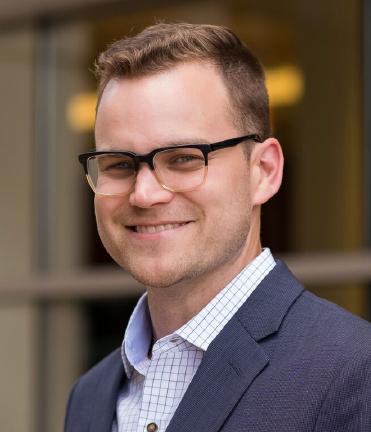
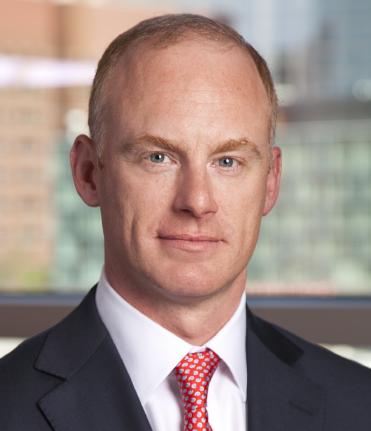
Director of Business Development
Dallas, TX
SHAWN FLYNN | Global Capital Markets
Principal
San Francisco, CA
DANIEL A. GAJEWSKI | Lazard Frères & Co.
Director, Financial Sponsor Coverage
New York, NY
JAMI GOLD | LCG Advisors
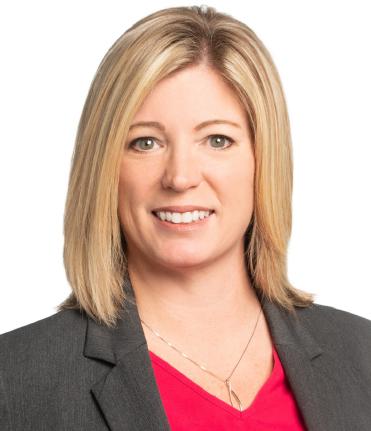
Managing Director
Tampa, FL
STEVEN HIGGINS | Delancey Street Partners
Managing Director
Philadelphia, PA
STEVEN HUNTER | TM Capital


Managing Director
Atlanta, GA
MATT JENSEN | ArkMalibu
Managing Director, Business Development
Cincinnati, OH
ISAIAH KNOUFF | Canaccord Genuity
Managing Director, Financial Sponsors, US
Nashville, TN
Establishing authentic relationships through a client-first approach and being a trusted resource for companies and private equity is how Victoria Beard approaches business development and marketing. As director of business development and marketing for the Piper Sandler energy and power investment banking team, Beard supports a commitment to providing deep sector expertise while creating unique experiences to foster productive executive interactions and deal introductions. Additionally, she is passionate about fostering and coaching the junior bankers and has designed programming specifically targeting their level.
Despite the challenges presented by the COVID-19 pandemic, 2021 was an active year for the energy and power team, which completed over 50 transactions totaling more than $15 billion in value across both public and private markets. The deals focused on oilfield services and equipment, renewables and clean energy, as well as midstream, downstream and upstream markets.
Business development and marketing are a team effort for the energy and power group, but Beard takes the lead on many fronts, including creating strategic partnerships and trusted client relationships that count when it comes to making strategic introductions. Beard found ways to connect with clients despite the pandemic through active personal outreach and creative target marketing and event campaigns. She organized in-person
meetings, events and conferences, including one that drew a significant increase in attendees—almost double—compared to 500 when it was in-person only. She also kept Piper Sandler at the forefront as a thought leader by helping to create and oversee the Market Insights Series, during which employees delivered critical commentary covering all industries on regular recorded conference calls.
Beard is a versatile jack-of-all-trades who is also the first point of contact for inbound inquiries and identifying key marketing opportunities. She enjoys assisting in employee recruitment and retention and is known as a connector who is thoughtful, strategic and an approachable resource, both internally and externally. With the goal of keeping the energy and power team connected, she organized internal trivia quizzes, wine tastings and regular employee interactions outside of the usual business activities.
Beard, who has more than 17 years of marketing experience, expects to see the firm continue in 2022 to meet clients’ needs for resources, education and analysis via a mix of both in-person and virtual interactions. Prior to joining Piper Sandler, Beard held several marketing positions within PwC and Norton Rose Fulbright. In 2017, she joined Piper Sandler and in 2018, she joined the Piper Sandler Foundation’s board of directors, which operates the firm’s community charitable giving programs. Beard is also a member of Piper Sandler’s Diversity & Inclusion Council.

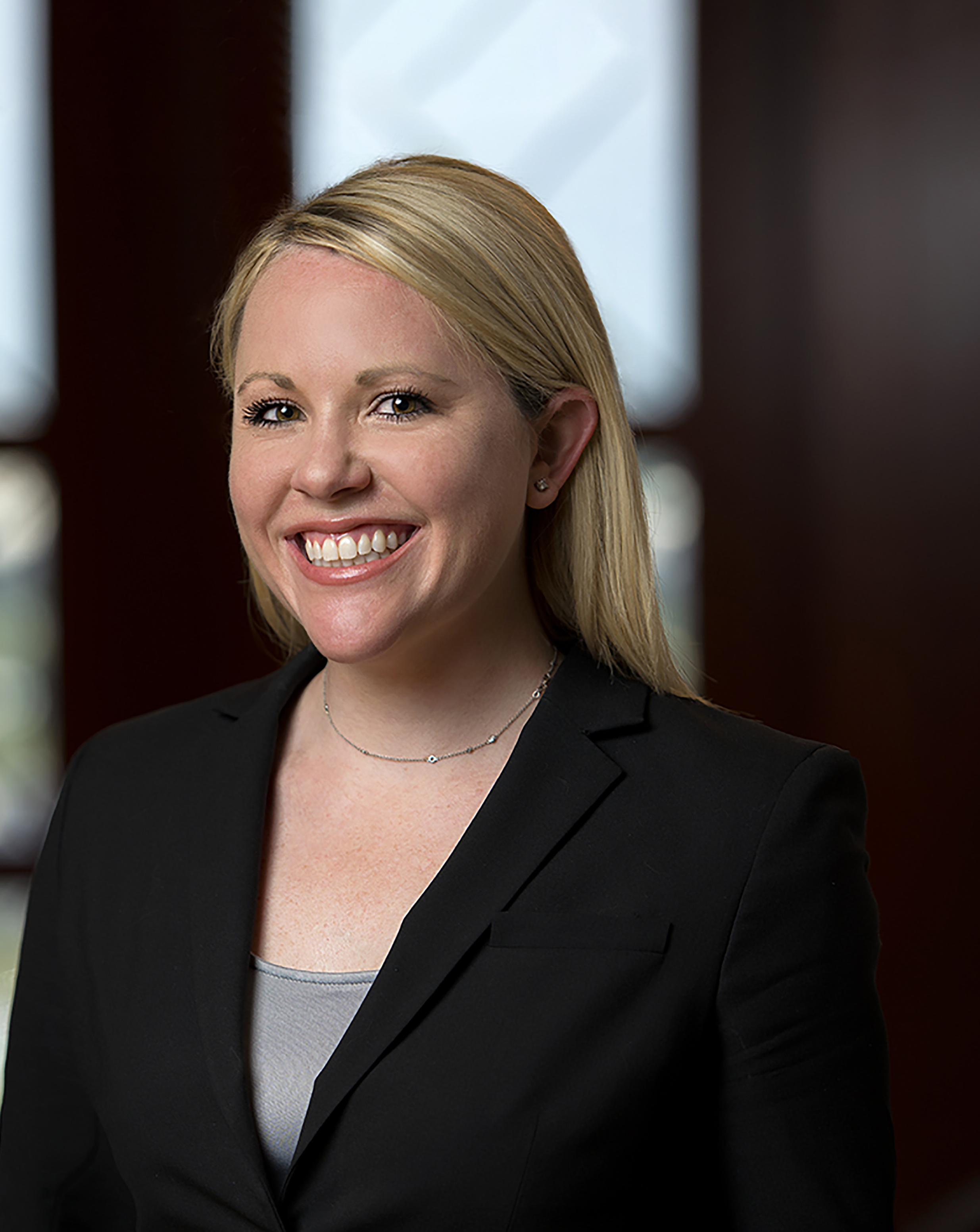
OTIS KU | Bank of America
Head of Middle Market Financial Sponsor Banking
Charlotte, NC
AMY L a BAN | Canaccord Genuity
Managing Director, U.S. Financial Sponsors Coverage
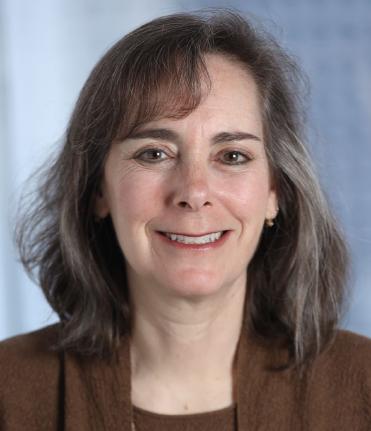
Chicago, IL
TUCKER LAURENS | Solomon Partners
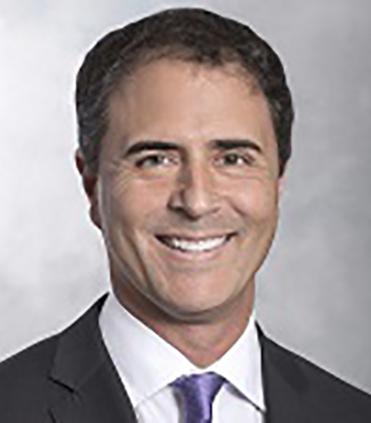
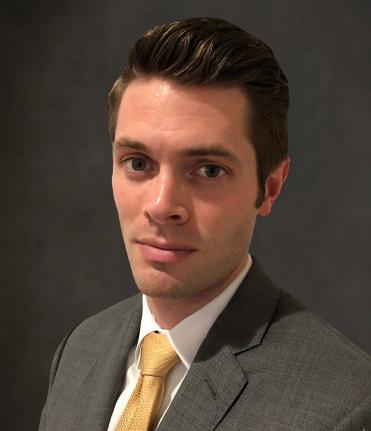

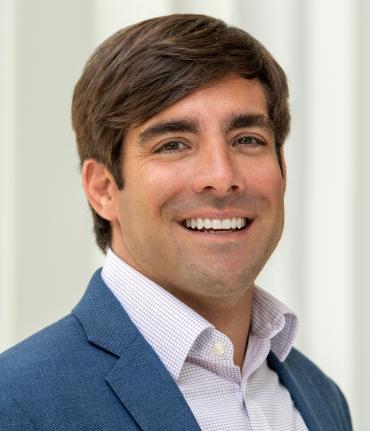
Director, Financial Sponsors Group
New York, NY
TIM LUDWICK | Citizens Director
Dallas, TX
CHRISTOPHER MACIOS | Guggenheim Securities
Managing Director, Private Equity Advisory
New York, NY
TYLER M CLINN | Moelis & Company
Financial Sponsor Coverage
Los Angeles, CA
JAKE MICHALKO | BMO Capital Markets
Investment Banking Associate
Minneapolis, MN
PAM S. NIGHTINGALE | Piper Sandler & Co.
Managing Director, Investment Banking
Minneapolis, MN
When he’s not behind a microphone for The Silicon Valley podcast, and even when he is, Shawn Flynn, principal with Global Capital Markets, is focused on growing the firm’s business, building strong connections with company leaders and clients, and educating them and the public about the ins and outs of M&A and other business topics.
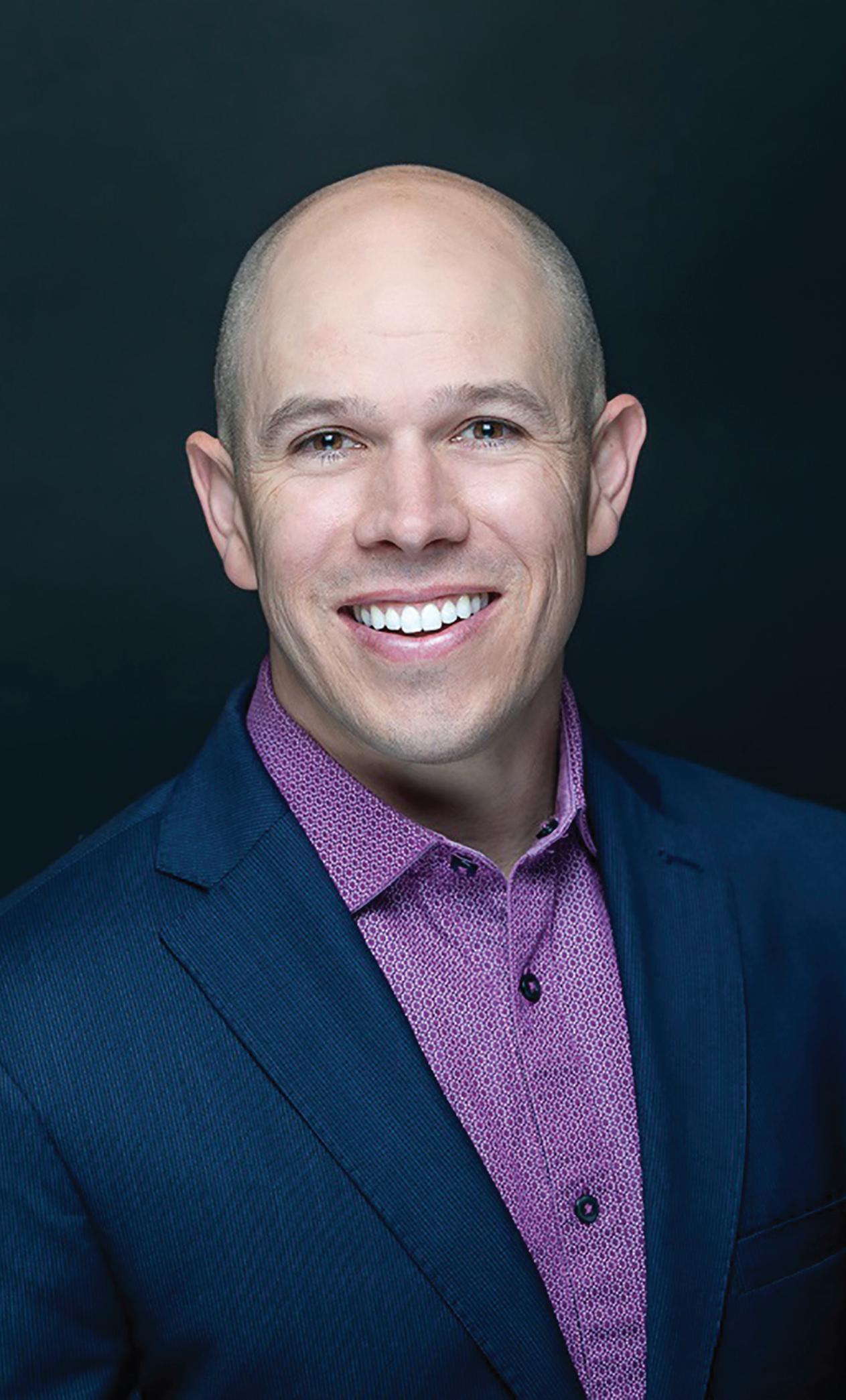
As a host of the podcast he founded several years ago, Flynn’s ability to network and connect with an audience brought him to the attention of investment bank Global Capital Markets, which hired him for its Silicon Valley team about a year and a half ago.
Flynn recently notched his 129th podcast episode which is no small feat, given the caliber of tech leaders that he’s brought on as guests. They include Jim McKelvey, co-founder of Square; Melanie Perkins, co-founder of Canva; Patrick Lee, co-founder of Rotten Tomatoes; Scott Kriens, co-founder of Juniper Networks; and Avram Miller, co-founder of Intel Capital.
The podcast delves into a wide range of topics, including building a unicorn company, raising funds, trends in technology and scaling a business, to mention a few.
While his podcast is an important part of his mission to connect Silicon Valley with the rest of the world, it’s far from the only thing Flynn does. He also helps generate business for his firm, which specializes in middle-market transactions and seeks to bring the same level of experience and expertise to midsize deals that larger transactions attract.
The firm has closed multiple $10 million to $300 million deals over the past two years.
Flynn takes a hands-on approach and works with clients through every step of the process, including
bringing in potential deals, onboarding clients, preparing marketing materials, creating an investor list, preparing IOIs and LOIs, and making sure timelines are followed.
Whether a client is acquiring or exiting a company, or raising growth capital, Flynn’s goal is to support them and make sure they understand and are educated about the intricacies of a transaction and what it will mean for them or their companies.
Flynn has built a presence in Silicon Valley where his team specializes mostly in sell-side M&A, growth capital and secondaries. Being part of Silicon Valley is crucial for Flynn, who really values relationships and enjoys meeting and building strong connections.
Every deal is different and needs to be marketed differently, which is how Steve Yan, a director in Houlihan Lokey’s Capital Markets Group, meets the challenges of working with clients across a multitude of industries and transaction types. These include raising debt and equity capital to support refinancings, recapitalizations, restructurings, acquisitions, leveraged buyouts and growth capital initiatives.
Yan, who has been raising debt and equity capital for clients as an advisor for over a decade, takes a client-first and objectives-focused approach to capital raising—an approach that meshes with the firm’s goal of creating capital structures that enable clients to achieve their strategic priorities with the best terms available in the market.
During the fiscal year that ended in 2021, the Houlihan Lokey Capital Markets Group raised and/or advised on over $18 billion of capital across over 130 transactions with over 70 different financial sponsors.
Yan joined Houlihan Lokey in 2020, but he’s been advising clients on debt and equity capital raises for over a decade. Prior to joining Houlihan Lokey, Yan was at Piper Sandler, where he was a senior member of the Debt Capital Markets Group, focused on sourcing, structuring and executing private credit and structured equity transactions across a variety of industries. And before that, he was a member of Lincoln International’s Debt Advisory Group, where he focused on structuring and executing private credit transactions primarily for financial sponsors.
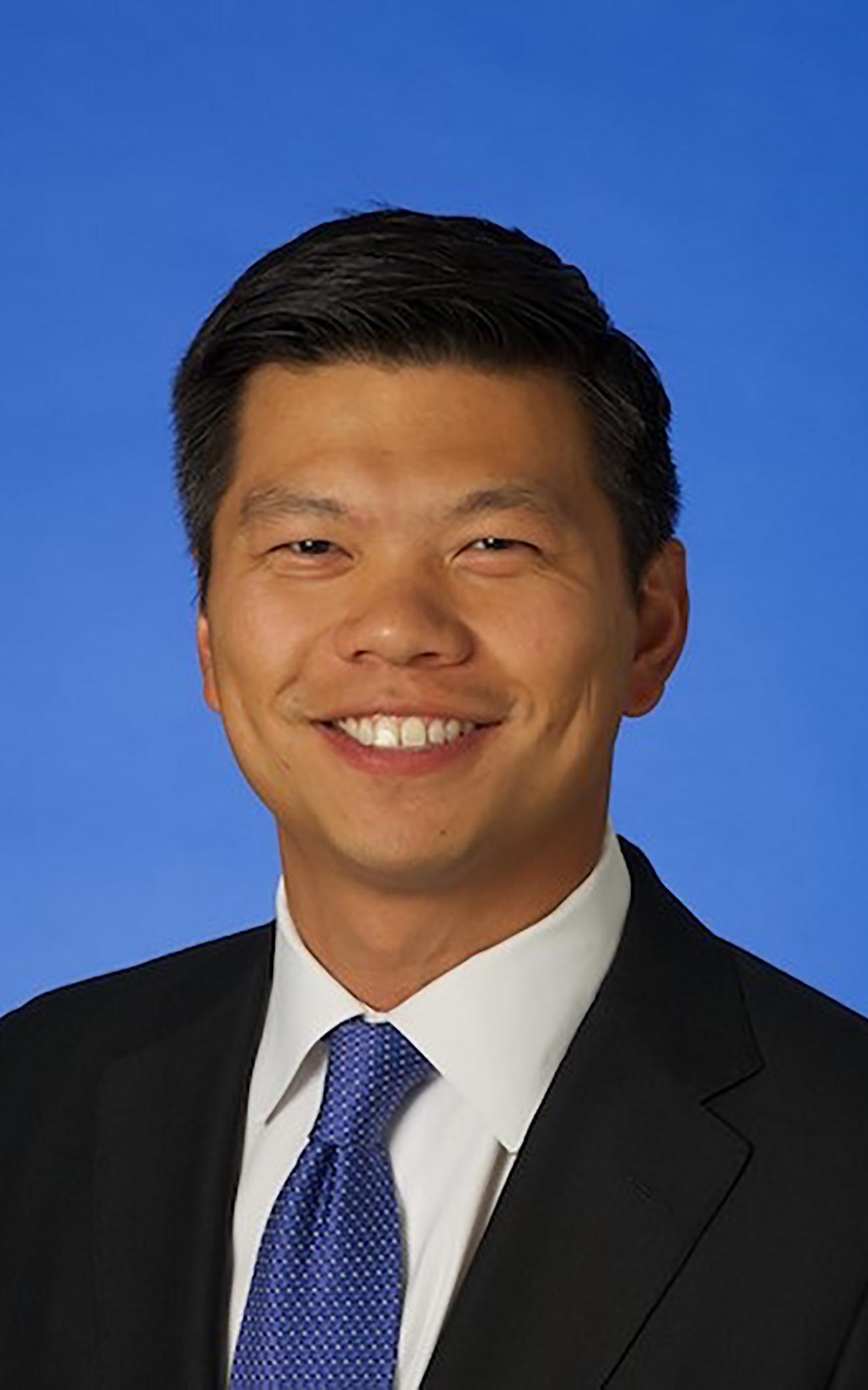
Yan’s experience has enabled him to build strong relationships with investors. He is also effective in structuring deals and targeting the right investors. Yan
uses creativity, problem solving, strong relationships and a deep understanding of the capital markets/capital structure to execute deals in even the most difficult situations.
Looking to the future, Yan believes the private capital markets will continue to thrive despite macroeconomic challenges, including inflation and supply chain disruption, among other factors, particularly in light of the abundance of capital that has been and is expected to be raised to support private credit and structured equity transactions.
MIKE NORTON | Houlihan Capital, LLC
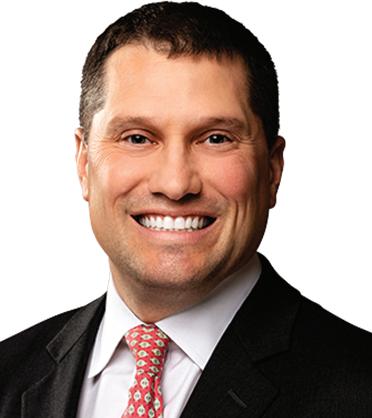
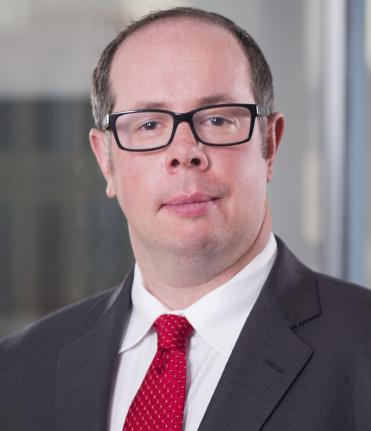
Director, Business Development
Chicago, IL
BLAKE OTTÉ | Raymond James
Managing Director, Investment Banking
New York, NY
SHERIEF RAHIM | IMPROVED Corporate Finance
Executive Director
Amsterdam, Noord Holland, The Netherlands
JESSICA SEFF | Statesman Business Advisors
Vice President, Mergers & Acquisitions
Houston, TX
STEPHANIE SIDERS | CC Capital Advisors
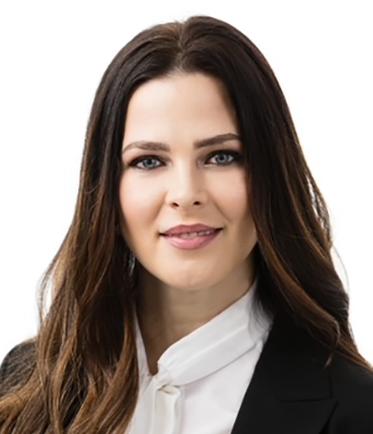
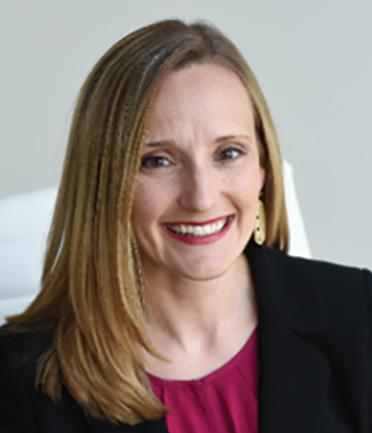
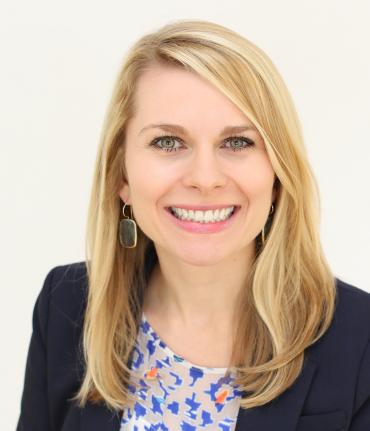
Managing Director
Mission Woods, KS
RYAN SUGRUE | Citizens M&A Advisory
Managing Director
Atlanta, GA
SAM VALENZISI | Lincoln International LLC
Managing Director
Chicago, IL
STEVE YAN | Houlihan Lokey Director
Chicago, IL


Private equity (PE) funds typically do not consider tax planning an effective strategy for boosting portfolio company earnings before interest, taxes, depreciation, and amortization (EBITDA). This is because realized tax benefits and the accompanying tax planning expenses generally do not positively impact EBITDA, thus causing an unintended impact on this critical metric used to evaluate a company’s operating performance. However, the federal employee retention credit (ERC) may positively impact EBITDA, and in addition, the nonrecurring fee paid to support the credit may qualify as an EBITDA addback. Specifically, PE funds looking to maximize financial performance may generate cash by claiming the recently enhanced ERC for eligible portfolio companies. The ERC is a refundable payroll tax credit first introduced as part of the Coronavirus Aid, Relief, and Economic Security Act, commonly referred to as the CARES Act, that provides employers a credit up to $26,000 per employee for qualified wages paid to employees after March 12, 2020, and before September 30, 2021.1 Although Congress does not permit taxpayers to claim the ERC for calendar year 2022, PE funds may still claim the credit for these prior years on behalf of their eligible portfolio companies.
Many portfolio companies have been able to avoid reporting a financial loss during the pandemic by claiming the ERC. For example, an eligible company with 40 employees could receive over $1 million in retention credit and would not need to report a federal income tax liability to qualify. While the ERC may provide PE funds substantial benefit, navigating the qualification and calculation considerations for PE portfolio companies can be complex.
PE companies must carefully evaluate the ERC eligibility requirements before determining whether and to what extent they qualify for the credit. To determine eligibility for the ERC, an employer must be able to demonstrate either: (i) its operations were fully or partially suspended as a result of a governmental order related to COVID-19 (the government order test); or (ii) it incurred a significant decline in gross receipts (the gross receipts test). Notably, qualified wages are calculated differently for 2020 and 2021 and may also be subject to a facts-and-circumstances evaluation to determine the total ERC benefit available to a portfolio company.

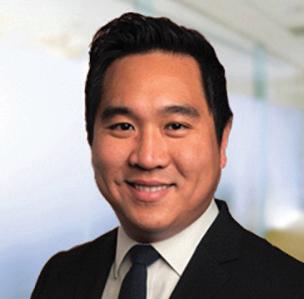
While the ERC may provide significant opportunities for PE portfolio companies, a nuanced and complicated analysis is necessary to evaluate whether the governmental order test or the gross receipts test is met and, ultimately, the amount of a proper ERC claim. This article does not address every potential situation and factor to be considered and, therefore, PE portfolio companies should seek professional guidance. Specialized tax advisors have developed significant expertise working with PE funds and their portfolio companies to identify and document ERCs in a manner that helps maximize EBITDA, net income, and free cash flow.
The ERC is one of many tax credits and incentives offered by federal, state, local and non-U.S. governments. BDO helps organizations identify, negotiate and secure tax credits and incentives — including retroactive and future opportunities — to minimize total tax liability and increase cash flow.

Calculator makes it easy to find out if you qualify for the credit, and if so, by how much.
As limited partners have raised allocations to private equity at record levels and fund sizes have increased, private equity firms have become more institutional. One result of that maturation process is that firms have created and carved out specialized functional responsibilities previously performed by deal professionals. Perhaps the greatest example of this over the last decade has been the development and evolution of the business development function, the role within private equity firms dedicated to deal origination. Years ago, only a few firms, such as The Riverside Company, Audax and Platinum Equity, had dedicated business development professionals. Today, while firms continue to develop and define the function in their own way, the business development role within private equity firms has become a widely accepted part of the industry. There are a number of themes and developments that reflect the evolution of the function.
 BY BILL MATTHEWS Partner and Co-founder, BraddockMatthews ERIN CARROLL Partner, BraddockMatthews
BY BILL MATTHEWS Partner and Co-founder, BraddockMatthews ERIN CARROLL Partner, BraddockMatthews
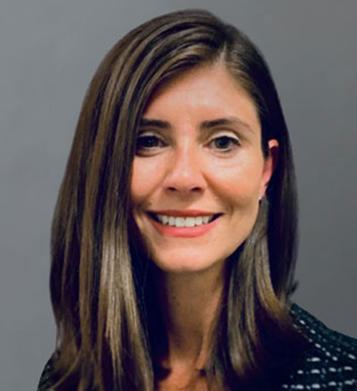
First, the business development role is adopted earlier in a firm’s life than ever before. In fact, it is now common for a firm raising an inaugural fund to have a dedicated business development professional and, in many cases, a small team. In 2016, approximately 25% of first-time funds ($250 million+) established a dedicated business development effort within the first year of (or before) closing their inaugural fund, according to research from Pitchbook and BraddockMatthews. These included leading private equity firms such as Gemspring Capital and Align Capital. That number steadily increased in the following years and in 2020, approximately 83% of first-time funds ($250 million+) established a dedicated business development effort within the first year of (or before) closing their

inaugural fund, including firms such as American Pacific Group, Crest Rock Partners and Teleo Capital.
Naturally, as a result of the commitment to a dedicated business development function, there has been a significant increase in the number of business development professionals in dedicated deal sourcing roles. Within a five-year period (2016-2021), we estimate the number of dedicated PE BD professionals, across all levels of seniority, has quadrupled. With the expansion of the BD talent pool, we have seen a meaningful shift by firms to recruit experienced BD professionals to lead their firm’s origination efforts. For the first-time funds raised in 2020 that established a BD effort, 100% of people recruited into those positions were current PE BD professionals, whereas in 2016, only 33% of the professionals had previous PE BD experience.
Another aspect of the evolution of the business development function is that the roles themselves have become even more specialized. In recognition of the fact that it is nearly impossible to cover every intermediary or company in every industry, at every size and in every geography, many firms today are building teams and assigning distinct coverage responsibility. Increasingly, we are seeing firms creating teams with dedicated industry sector responsibility. Sectors such as healthcare and technology often seem to be given dedicated responsibility, but many firms, in particular those that have separate sector investment teams, also have separate business development professionals for each sector. Other firms assign coverage responsibility by geography; many want their BD professionals to live and work within their assigned geography, where they can more easily develop a network and embed themselves in the
community. Still other firms have separate coverage responsibility for bulge bracket or upper middle-market intermediaries and smaller boutique firms, often referred to as “the long tail.” Finally, some firms have separate individuals or teams covering companies directly (often via direct outreach) and others covering intermediaries.
Firms increasingly are demonstrating a true commitment to business development and dedicating more resources to the function, including through technology resources and more sophisticated, customized solutions.
Their commitment is also reflected through human resources, as revealed by our 2021 PE BD Compensation Survey, an annual survey of private equity business development professionals in the U.S. Nearly 40% of heads of BD said they had plans to expand their BD team within the next 12 months, with 70% noting it would be at the associate/analyst level. Importantly, firms are dedicating resources in the form of increased compensation. Our survey results point to a consistent increase in compensation, in particular for those professionals who have demonstrated experience in the role. For example, the average annual compensation (salary plus bonus, not including carry) for a business
development professional with six to nine years of experience in the function increased by 33% from 2015 to 2020. More startling, the average annual compensation for business development professionals with 15 or more years of experience increased by 75% over that same time period.
Finally, as the business development role has become accepted within the private equity world, it has become an attractive career opportunity for bright young professionals. We estimate that the number of private equity business development professionals in the U.S. has increased by more than 300% over the past five years, in large part because young professionals view the role as substantive and meaningful. They see that in many cases it is an important and integrated part of the investment process at the firm, and they see firms dedicating more resources to the function. They are often told that the function is “partner track” and, importantly, they see the hundreds of others in the function that have developed a successful career. //
BILL MATTHEWS is a co-founder and partner at BraddockMatthews, with nearly 30 years of experience in executive search, financial services and law. He works on recruiting senior investment professionals and non-investment professionals (including roles in investor relations, business development, portfolio operations, talent and finance) for GPs and LPs in private capital.
ERIN CARROLL is a partner at BraddockMatthews with over 20 years of experience in executive search and financial services. She spends the vast majority of her time working closely with private equity firms to recruit top talent to their teams, including investment, investor relations, business development / deal sourcing, talent, finance, and portfolio operations professionals.
We estimate the number of dedicated PE BD professionals quadrupled between 2016-2021.

The “Corporate Development Professionals to Watch” list was compiled by Middle Market Growth editors based on nominations from the ACG dealmaking community. Nominators were asked to put forward professionals who are actively pursuing acquisitions or divestitures on behalf of their organizations, who are well-respected by deal partners and peers, and who have achieved success in their roles.

To compile the list, the editorial team considered the information provided on the
nomination form and available online, and additional input from ACG members, volunteers and leaders.
There’s no ranking for the lists, nor for the individuals profiled in the following pages. The profiles are designed to showcase the diversity of the corporate development profession across various dimensions, including company size, geography, race, gender, industry and more, and to tell the stories of individual professionals working in this field. //
KATE ANISSIMOV | Yardzen
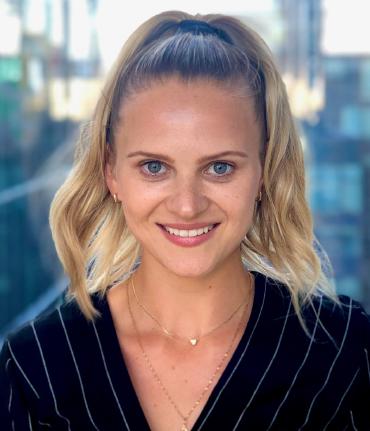
Head of Business Development and Strategic Partnerships
San Francisco Bay Area, CA
ADAM BOSCOE | Granicus
Head of Corporate Development and Strategy
Denver, CO
DEREK BOWEN | Amylyx Pharmaceuticals
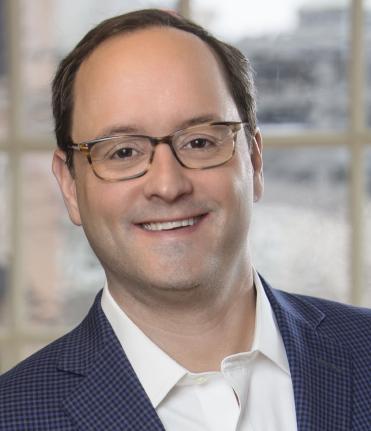
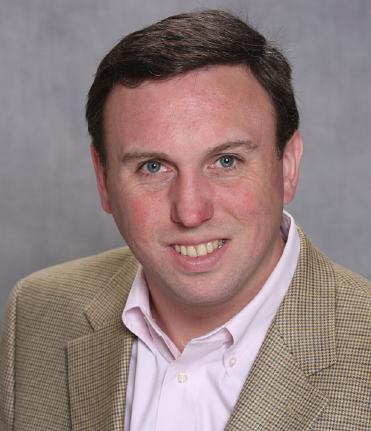
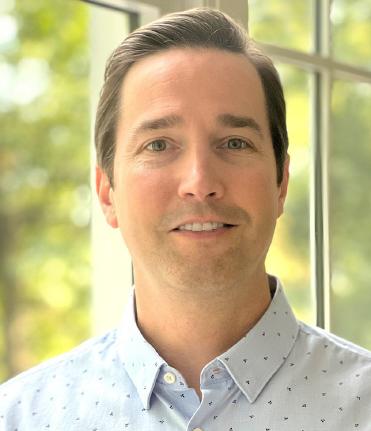
Global Head of Business Development
Philadelphia, PA; and Boston, MA
BRIAN BUCHERT | Church & Dwight
Executive Vice President - Corporate Strategy, M&A and Business Partnerships
Ewing Township, NJ
VINCE CASTIGLIONE | Epicor
Global Head of Corporate Development
Denver, CO
DESIREE CASTILLEJOS | Kimball Electronics
Former Chief Strategy Officer & VP, Corporate Development
Chatham, NJ
XAVIER CHAILLOT | The CE Shop
Chief Corporate Development Officer
Toronto, ON
PIERCE CLEARY | Schnitzer Steel
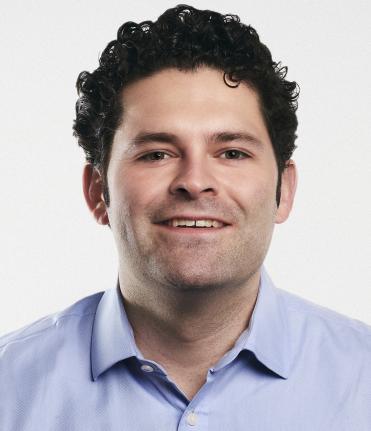
Senior Director, Business Development & Strategy
Morristown, NJ
JEFF GILES | Core & Main LP
Vice President, Corporate Development
St. Louis, MO
Desiree Castillejos opened a fortune cookie and read the message that best describes why she’s a successful corporate development professional. “Luck Favors the Prepared,” it said, and Castillejos always stays prepared. She keeps up with industry trends, plans acquisitions years into the future, and tends to her professional relationships, often finding the best deals through her network.
Castillejos worked for the past three years as chief strategy officer and vice president of corporate development at Kimball Electronics. Kimball Electronics is a $1.3 billion publicly traded contract manufacturer located in Jasper, Indiana, that serves the automotive, industrial, medical and public safety industries.
In her role, Castillejos worked to identify areas for the company to pursue acquisitions, make investments or form partnerships. She looked for companies that Kimball could target for acquisition and negotiated with these companies on any potential transactions. At Kimball, Castillejos focused on making acquisitions of industrial assets, along with the occasional software and services company. To acquire the right targets, she had to understand the market size and opportunity of the industry, but also have good quality relationships with the ecosystem at large, something she says is one of the most important traits of working in corporate development.
Castillejos has worked in corporate development for 15 years and has completed about 15 M&A transactions. Before working at Kimball, she focused on making acquisitions in the software industry.
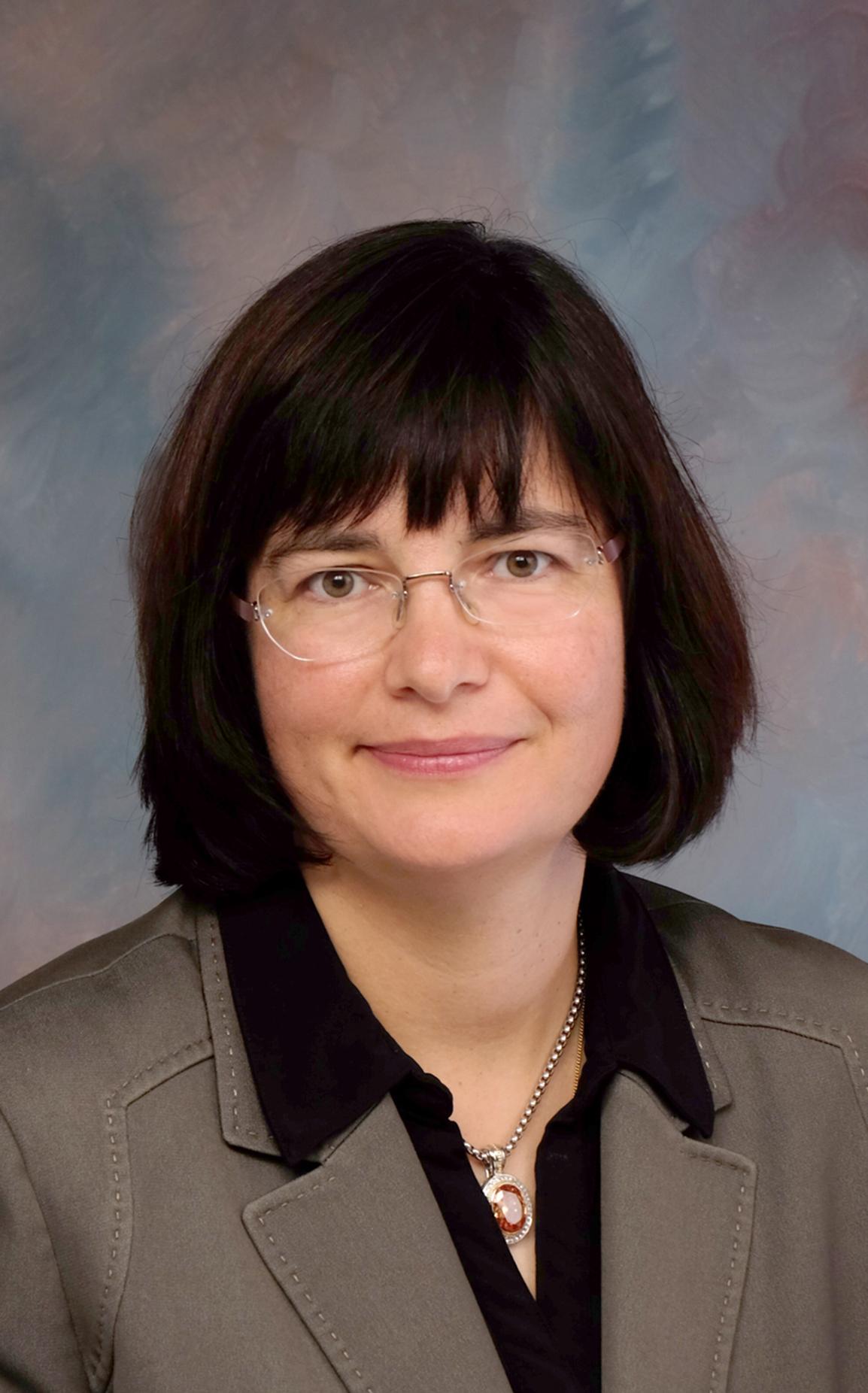
Casey Kindiger, CEO and co-founder at Grok and a serial entrepreneur whom Castillejos worked with to sell his $25 million software business, says that Castillejos is special because of her intelligence and ability to personally connect with people. Before working with her, he had never sold a business, but she helped him understand the process. She had a deep understanding
of his industry, he says, and made him feel comfortable about the future of the 140 employees at his company. Castillejos is one of the few people who is always in the back of Kindiger’s mind, he adds, as he wants to find more ways to work with her.
Castillejos has spoken at industry events, including for ACG, TheDeal.com and at the Transaction Advisors Institute. She’s fluent in English, Spanish and French. She’s a member of the board of trustees for the Young Science Achievers Program and, at Kimball Electronics, she championed the Women in Engineering initiative and created the Hispanic and African American employee groups and was the executive sponsor of the Environmental employee group.
Castillejos recently left Kimball Electronics for a new job. She will continue building relationships, knowing that the next great deal will favor those who come prepared.
Siemens Energy
Jelena Guzenko has been involved in many deals during her 20-year career with Siemens Corporation, but September 2020 marked the biggest one yet, as Siemens Energy spun off from the parent organization to become its own publicly traded entity.
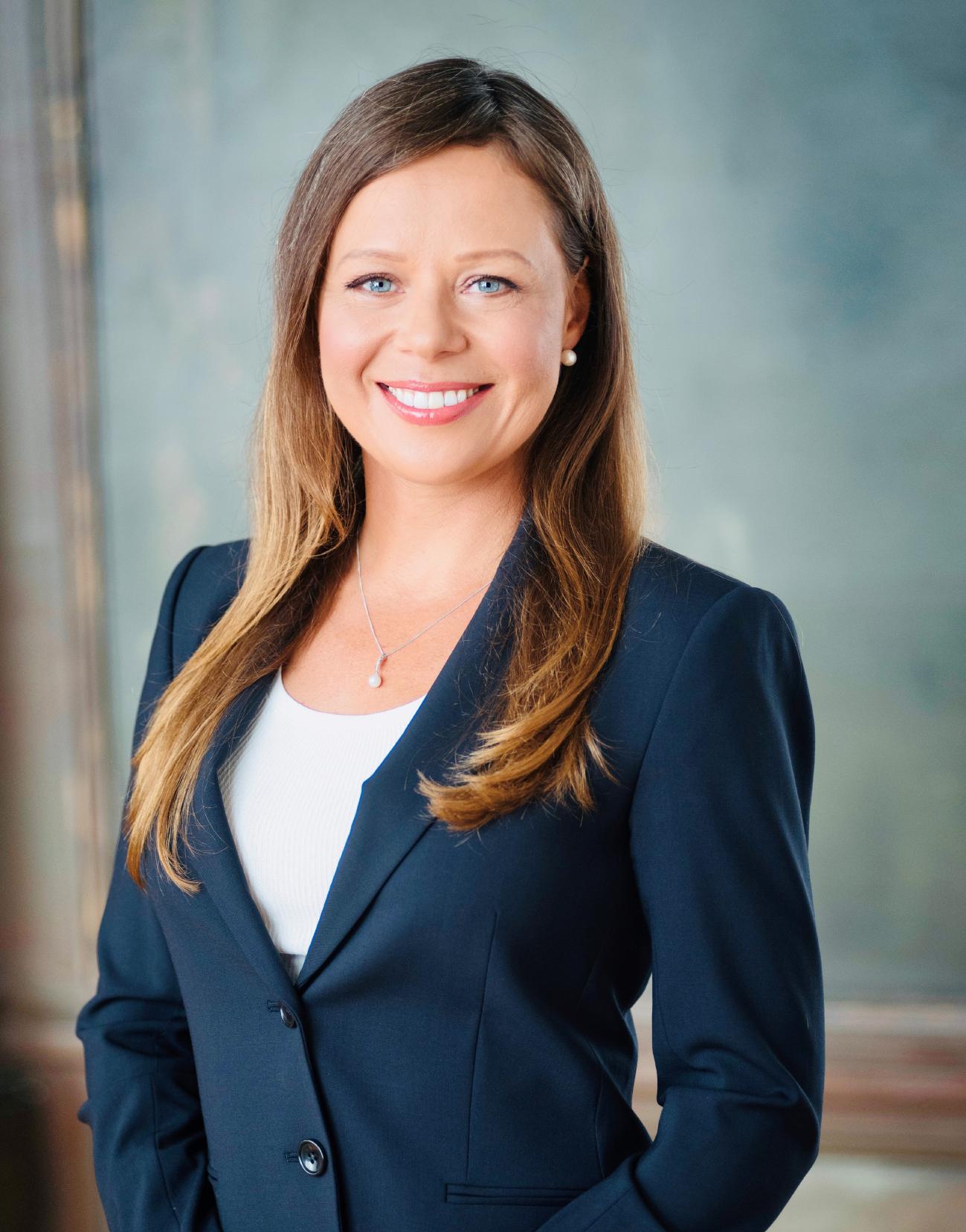
Today, Guzenko leads the M&A function for Siemens Energy Americas out of New York City.
The German-headquartered Siemens Energy, whose annual revenue is 28.5 billion euros, has made several smaller acquisitions since its spinoff, with others in progress.
In her role, Guzenko and her team identify and acquire assets that will complement Siemens Energy’s existing portfolio and help the organization achieve its mission of empowering customers to meet the growing global demand for energy, with an eye toward sustainability. The company’s top focus areas are ESG, innovation and transformation. Guzenko and her team are also involved in divesting noncore assets, as Siemens Energy continuously looks to optimize its portfolio.
Asked about the most rewarding aspect of her role, Guzenko points to the dynamic, strategic nature of corporate development and the opportunity to work with sophisticated professionals—both within and outside of Siemens Energy. The work also offers a chance to dive into new areas, learn about emerging technologies and achieve a positive outcome for all parties in a deal.
In streamlining and accelerating Siemens Energy’s portfolio, Guzenko views her M&A work as helping to address challenges presented by a changing climate, while developing and preserving critical technologies. For the businesses involved, Guzenko’s M&A leadership contributes to their future success and job creation, whether that’s within Siemens Energy or, in the case of divestitures, under new ownership.
Aaron Polack, head of business development for PE firm Lion Equity Partners, has worked with Guzenko and
says that she cares deeply about the end result for the divested assets, and is focused on making sure the business is going to a good home. He notes that she’s admired for her level of professionalism and energy, and her deep understanding of the mechanics of various types of M&A.
Guzenko originally joined Siemens in Cologne, Germany, in 2002, and has since worked in a variety of senior-level roles for the organization, including in corporate strategy, business development, management consulting, marketing, operations and finance. Prior to joining Siemens, she held roles at Tektronix and Citibank.
Fluent in four languages, Guzenko has developed significant experience over the course of her career in developing global strategies for multibillion-dollar divisions, as well as business and market analytics and forecasting in various industries, including energy, healthcare, telecommunications, construction and manufacturing.
Now, at Siemens Energy—a startup with a 150-year legacy, thanks to its former parent—Guzenko is putting that experience to work as she helps build a brighter future for the company and the planet, one deal at a time.
JELENA GUZENKO | Siemens Energy
Vice President and Head of M&A Americas
New York, NY
BRIAN HAMILTON | Allied OMS
SVP | Partnerships
Grand Rapids, MI
JONATHAN KERN | West Monroe
Partner, Head of Corporate Development
Chicago, IL
RACHAEL J. M CCLURE | Leidos
Director of M&A, Corporate Development
Washington, D.C. Metro
CHANDRADEV MEHTA | LyondellBasell
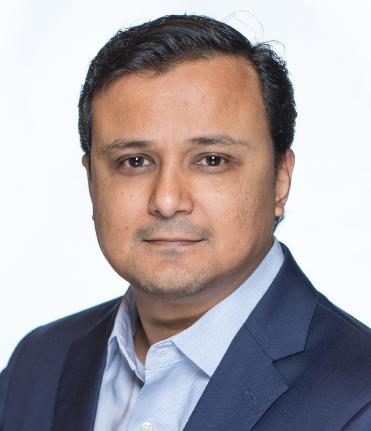
Head of Mergers & Acquisitions
Houston, TX
NOEL MOCK | Core & Main LP
Director, Corporate Development
Tulsa, OK
RYAN MULLIN | Rheem Manufacturing
Global Strategy & Business Development
Atlanta, GA; and New York, NY
RYAN NEWTH | Tremco Incorporated

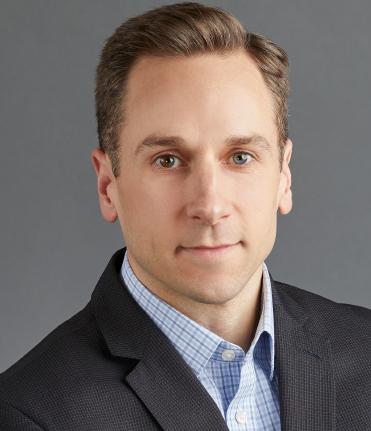


Director of Business Development
Beachwood, OH
KEVIN J. RUDD JR. | Recovery Centers of America
Director, Corporate Strategy and Acquisitions
Philadelphia, PA
At Recovery Centers of America (RCA), where Kevin Rudd has worked for the past six years, his boss calls him The Translator. Brian O’Neill, CEO of RCA, has ideas and Rudd makes them work. When O’Neill has something complicated to explain to an investor, lender or equity professional, Rudd explains it perfectly.
Rudd, RCA’s director of corporate strategy and acquisitions, has helped RCA grow by millions of dollars since he arrived at the company, working on more than 100 acquisitions or partnerships. RCA, headquartered in King of Prussia, Pennsylvania, has 11 treatment centers across the U.S., making it the largest provider of drug and alcohol rehab services in the country. RCA is privately held by Deerfield Partners and a VC angel investor, while being run by the management team. Rudd says that RCA and its investment partners communicate openly with each other, making it easy and enjoyable to work and brainstorm ideas.
Before Rudd joined the company, RCA focused on real estate deals across the country to expand its recovery center footprint. Since he came on board, RCA has focused more on M&A and partnerships. The biggest payoff in acquisitions has likely been RCA’s focus on testing labs, which started small but has ballooned to more than $500 million in revenue over the course of the pandemic. In addition to his M&A work, Rudd serves as something of a utility player for RCA,
working in operations and partnering closely with RCA’s management team. What makes Rudd good in his role at RCA is his skill at building relationships. One can’t simply pick up the phone and start making deals without first building up those connections, Rudd says—there must be intention and focus on the relationship. Rudd recalls his first couple of years at RCA, talking to as many people as possible and bringing up the potential of doing business. Let’s keep in touch, he’d tell them the first time, before calling them and seeing them repeatedly at conferences over the years. These relationships have paid off, he says, and he believes that his kindness, openness and positive mindset are big reasons why.
Rudd currently has three people who report to him and wants to be there to help them grow. He’s also on the Young Dealmakers committee at the Philadelphia chapter of ACG. One of his goals for this year is to mentor young industry professionals and help them grow quickly just as he did.
What makes Rudd special, according to O’Neill, is his intellect, as well as his ability to quickly digest and communicate new information. He’s also a workhorse, O’Neill says, willing to take the reins on complex projects and get them done, even when starting off without any knowledge. O’Neill considers Rudd to be a partner in business, one he plans to keep around at RCA for a long time.


BRAD SEGAL | Eurofins Scientific
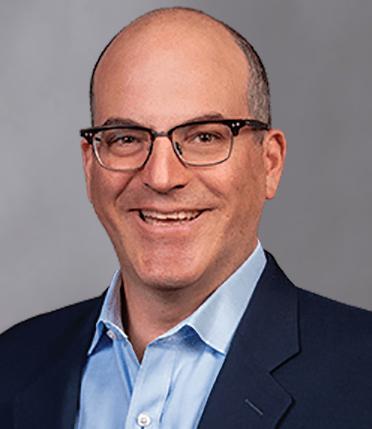
Vice President, Corporate Development
Philadelphia, PA
JEREMY SEGAL | Progress Software
Executive Vice President, Corporate Development
Burlington, MA
ROBIN SITVER | Alume Biosciences
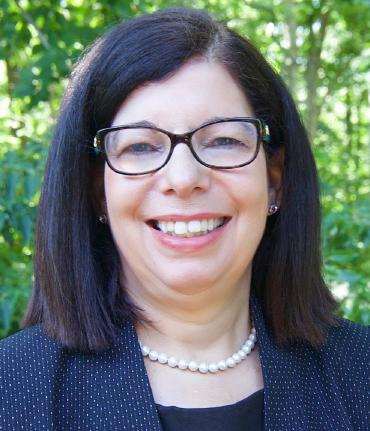
Vice President, Corporate Development
Short Hills, NJ
EVAN STEPHENS | Mission Veterinary Partners


EVP, Business Development

Detroit, MI
TRENT THRASH | TaskUs
SVP, Corporate Development & Strategy
Dallas, TX
KEITH TICE | Revalize
Vice President of Corporate Development
Austin, TX
PETER TROUP | Veritiv
Vice President, Corporate Development
Atlanta, GA
CODY UZCATEGUI | Terminix International Company Limited Partnership
Director of Mergers and Acquisitions
Memphis, TN
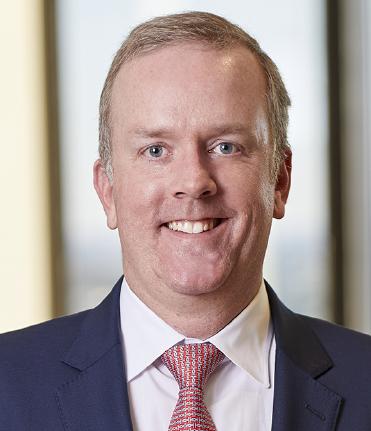

Jeff Giles’ path didn’t always look like it was headed toward corporate development, yet a passion for the deal business and a commitment to developing the skills of the trade ultimately led him to his current role in M&A and strategy for Core & Main.

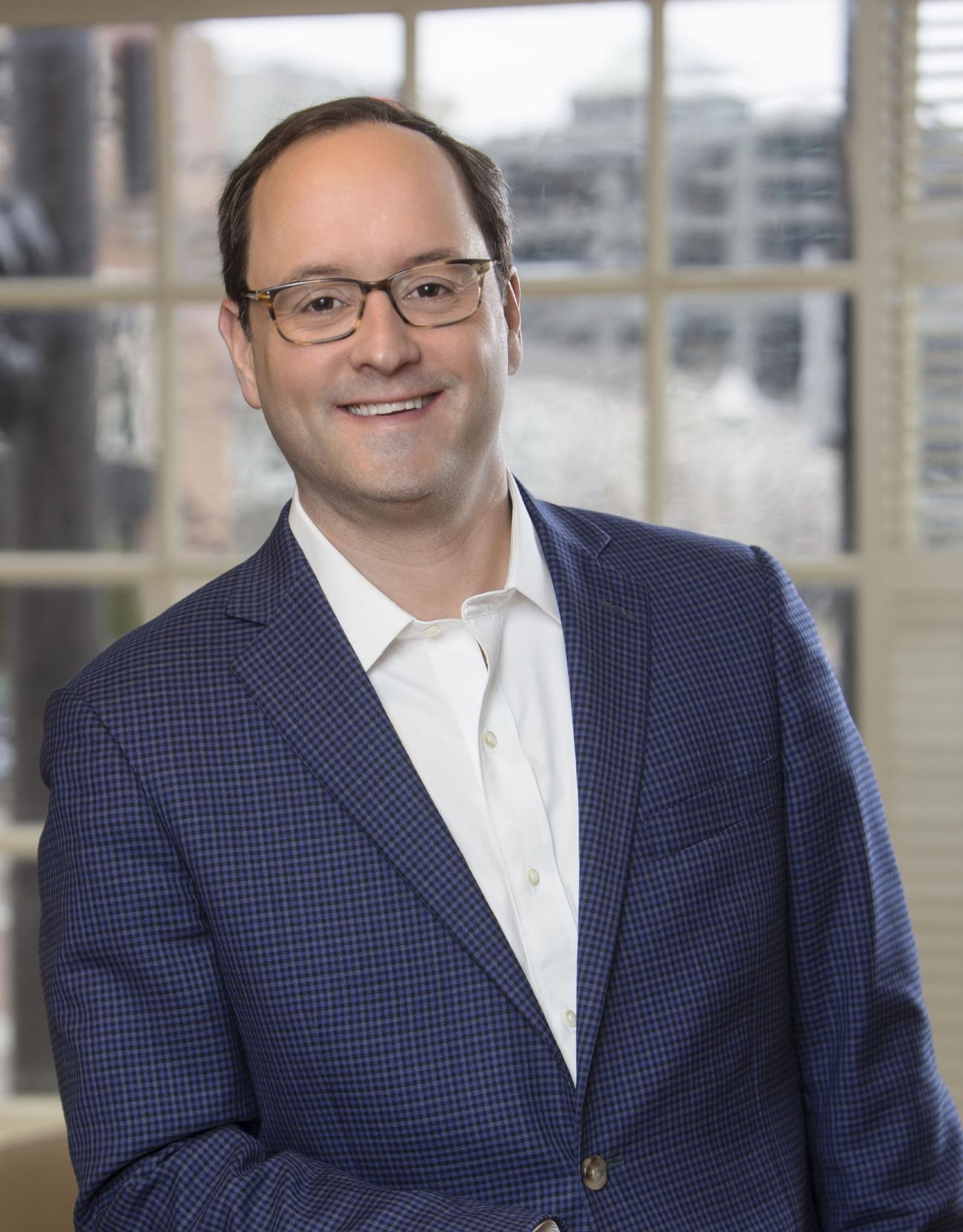
Based in St. Louis, Core & Main is a leading distributor of water, wastewater, storm drainage, fire protection products and related services. It was part of HD Supply, an industrial distributor, before private equity firm Clayton Dubilier & Rice carved out the division in August 2017. The following March, Giles joined Core & Main’s executive team to build out the corporate development function. (Core & Main is now publicly traded itself, having listed on the New York Stock Exchange last July.)
Earlier in his career, while working in a business development and strategic planning role at a Fortune 500 manufacturer, Giles realized he wanted a role that was more entrepreneurial. From there, he joined a startup private equity firm, where he began learning about the deal business.
His time in private equity, which later included six years at Bertram Capital, provided insights he continues to use. It revealed the importance of developing high-quality relationships with relevant intermediaries and deal referral sources, and being genuine and having a differentiated message. It also instilled the process discipline required to buy and sell companies quickly and efficiently.
Porter Wiley, a managing director at investment bank FMI Capital Advisors, who has worked with Giles on two transactions, says that Giles’ private equity background is evident in his understanding of how to compete for deals. According to Wiley, Giles knows that being a large acquirer isn’t enough; corporate buyers still need to make a compelling case for why a seller should choose them. Wiley adds that the deals he’s worked on with Giles have gone smoothly with positive outcomes for both buyer and seller, and that Giles stands out for being true to his word and following through on his commitments.
Today, Giles and his team are focused on rolling up
companies in Core & Main’s core markets, strategically expanding into new geographies, adding key talent or gaining access to new product lines that complement the existing business. One example was its acquisition last summer of L&M Bag & Supply, a supplier of erosion control and geosynthetic products that help minimize soil erosion and runoff at construction sites. Targets range from small businesses to larger regional players.
Giles estimates he’s worked on more than 40 acquisitions worth over $1.5 billion during the course of his career. Since he joined Core and Main, the company has closed 16 deals. Through Giles’ leadership, Core & Main actively develops a large pipeline of acquisition targets and strives to be the acquirer of choice in its industry.
Giles acknowledges that his path into corporate development wasn’t a traditional one. But he says an atypical background shouldn’t stop someone from pursuing a career in the field. His advice: Chase what you’re passionate about, look at the opportunities in front of you and acquire the skills and experiences you need to get where you want to go.
The Private Equity Operators Council, proudly supported by SAP, brings together key professionals and operators who want to explore solutions to value creation challenges in a convenient and candid setting.

The Council is designed for operators and professionals who are responsible for accelerating growth across the investment cycle.
The Council meets virtually the first Thursday of each month at 2pm ET to explore solutions to the most pressing strategic, functional and industry challenges value creation teams are facing today.
If you are interested in becoming a member, please scan the QR code below and complete the brief questionnaire.
Be sure to check out our events page to register for the latest council meeting!
Scan this QR code with your camera app on your phone and click the link to take the questionnaire.

After a long pandemic hiatus, most ACG events are returning to in-person formats, meaning it’s time to dust off the suitcases and relearn how to navigate a happy hour.
To help ease the transition back to “normal” conference life, Middle Market Growth asked business leaders and M&A professionals to share their best tips for packing, meeting prep, networking, follow-up and more. Here’s what they said:
When traveling to an event, Travis Bradshaw, director of growth at digital production agency Crema, prefers to pack lightly and use a carry-on. His pro tip is wearing shoes that are easy to slip on and off, making it easier to get through airport security.
“Other tips to consider include being strategic in scheduling business development meetings ahead of time,” Bradshaw says. “Perform research on your prospects and identify what their needs are so that you can be prepared to follow up with solutions.”
Setting up meetings in advance is key, but don’t overcommit, warns Alex Drost, founder and CEO of Connection Builders, a tech-enabled platform to accelerate career advancement.
“Leave time for serendipitous connections to happen,” Drost says.
David Acharya, managing partner at private equity firm Acharya Capital Partners, recommends using the Scan to Salesforce app at events, which makes it easier to upload contacts into a CRM rather than collecting business cards and inputting the information at a later date.
“Alternatively, you can take a photo of business cards with your cell phone rather than carry hundreds of cards,” Acharya says. “There’s no need to hand out physical business cards.”
Also, don’t forget to take a fresh approach to pitching your funds instead of repeating your investment criteria,

says Michael Norton, director at Houlihan Capital, a boutique investment bank.
“For newbies and youngins from capital providers: Don’t simply repeat your investment criteria during the one-on-ones. We can Google your fund,” Norton says. “Instead, with so many financial buyers in the market, tell us (investment banks) what makes your fund unique. Between us friends, wanting to be the first institutional capital in does not make your fund unique.”
Norton recommends sharing information that will be valuable to a banker audience.
“Perhaps you have a brand-new operating partner whose experience makes you particularly well-suited for a particular industry, or maybe your fund has recently acquired a new platform or two, which have yet to make the website and are seeking add-ons. That’s what we want to know,” he says.
After the event is when the real work begins. Before you head home, make sure you’ve scheduled time to follow up with your prospects to nurture them along, suggests Crema’s Bradshaw.
Also follow up by connecting on LinkedIn, and send a quick email with your materials as an attachment, says Gretchen Perkins, partner at private equity firm Avance Investment Management.
“Do not email the whole attendee list with, ‘I’m sorry we didn’t get a chance to meet, but we do (blank) and here is my brochure,’” Perkins says. “Not effective.”
Rich Grant, director of business development at private equity firm Northlane Capital Partners, says it’s best to prioritize follow-ups based on the content of each meeting.
“Items discussed with an identified timeline should be revisited within the following two weeks and those without a specific timeline should be moved back to three-plus weeks out,” Grant says. “The only thing you should not do in a follow-up is stray from the topics discussed during the meeting or previously agreed as next steps.” //
Master it, with ACG’s Middle-Market Professional Certification Program. With a challenging series of engaging coursework, this self-guided program provides high-achieving professionals like you the opportunity to strengthen their knowledge of – and standing within – the middle market.
The first of its kind, the MMP was designed specifically for middle-market M&A, so bolster your skills and get ready to navigate the deal-making universe with newfound confidence.

Exams are offered just four times a year— so claim your spot now at acg.org/knowthedeal
Already a middle-market black belt? Send a protégé our way. Reach out to certification@acg.org, and if your referral enrolls, you’ll be rewarded with two free months of ACG membership.
